The portable emergency room — Peace of mind for off-grid living and travel
Our doctors prescribe you life-saving medications before you need them. We ship them to you before your next adventure. Treat urgent medical issues anywhere — without finding a doctor or pharmacy.
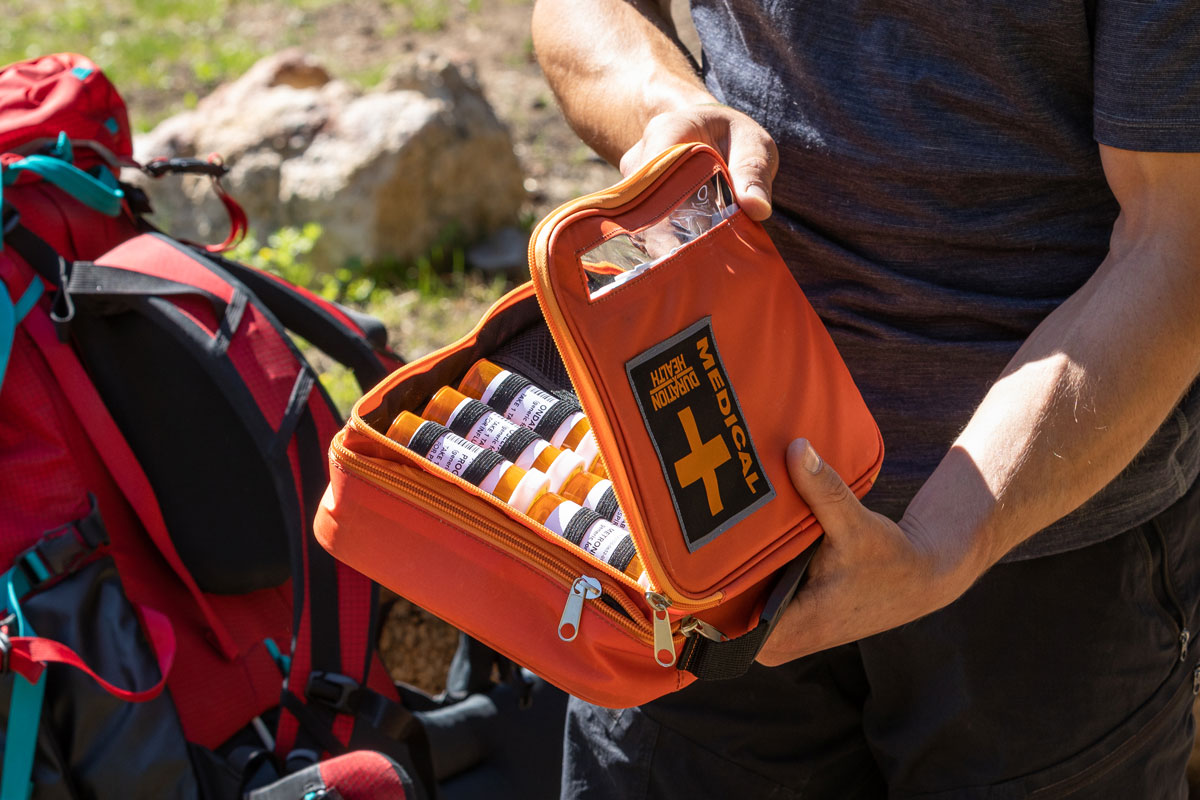
TRUSTED BY THE NORTH FACE GLOBAL ATHLETE TEAM

"This is the ultimate medicine cabinet for most emergencies" — Forbes


Trusted medications to treat the most common issues
Duration Health medical kits include prescription-only medications — like antibiotics and EpiPen — that treat urgent problems for adults and kids. We offer 20 kits built from over 70 medications, sourced from the same U.S. suppliers as your local pharmacy and prescribed to you in advance. You'll have instant access to trusted treatment — without the stress of searching for a nearby clinic when you're sick.
See The Medications
"Duration Health mixes telemedicine with a survivalist mindset to sell medical go-bags — basic prescription drugs someone might need while traveling or trapped at home" — Axios
Prescribed to you by our expert doctors
Our world-class physicians customize your kit to your exact needs. Every kit includes a one-on-one video consultation with our doctors, board-certified in emergency medicine, wilderness medicine, travel medicine, and pediatrics. And, enjoy ongoing access to our doctors for a year, so you'll always have expert help available.
"The price of the kit includes an online doctor visit for prescriptions and advice" — Forbes
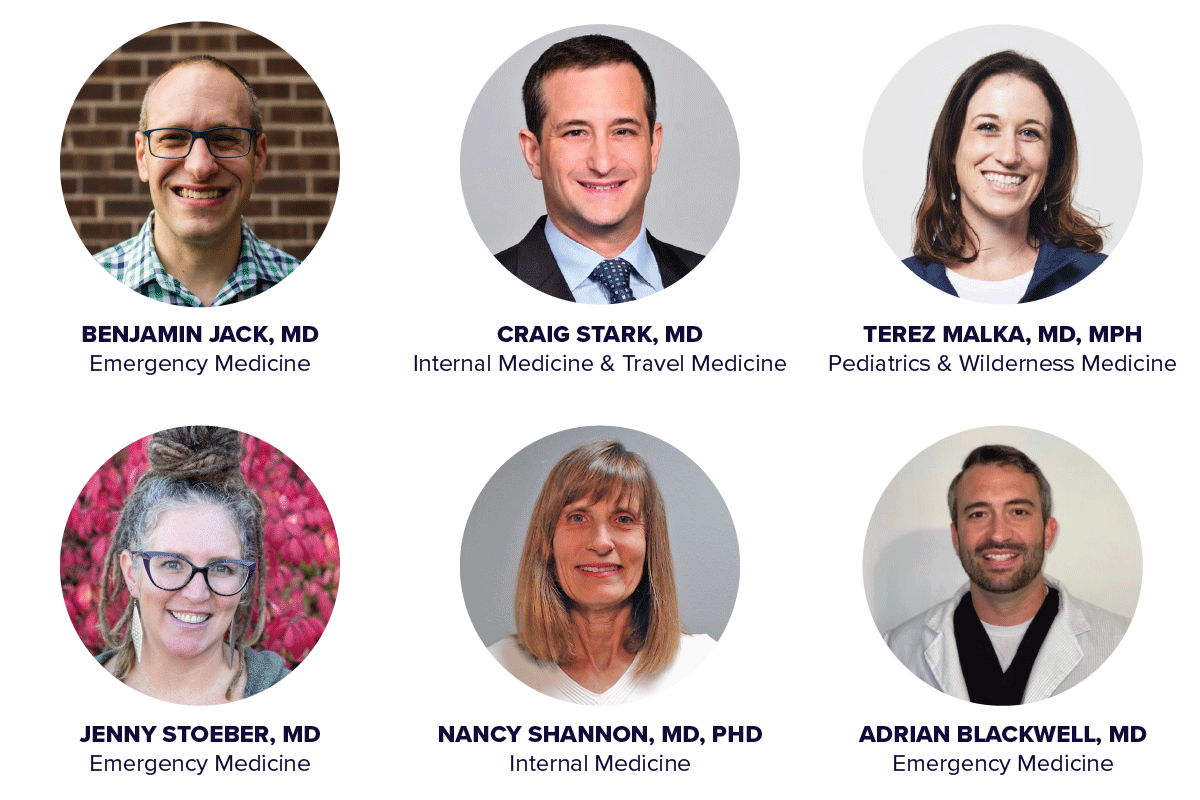
Easy refills & shelf life
Our easy annual renewal process ensures the medications in your kit are always current. Use your account dashboard at any time to replace medications you've used and to update your entire kit once each year.
We provide a one-year expiration date for all items, the maximum allowed by regulation for prescription vials, with some items like creams and inhalers valid for up to two years. We'll keep your kit current — so you never have to take chances with expired medications.
TSA & Customs ready
Each medication is individually labeled with its prescription to meet international travel requirements.
Family friendly
Medications are available to treat adults and children. From amoxicillin to EpiPen, we cover kids as young as 6 months.
HSA/FSA accepted
We accept cards linked to a medical spending account such as a Health Savings Account (HSA) or Flexible Spending Account (FSA).
Refund guarantee
Your payment is fully refundable at any time until your Med Kit ships, even after the physician review. Walk away any time before shipment and pay nothing.
Individually prescribed
Each medication is prescribed for use by one individual, based on his or her medical profile.
Emergency meds only
We focus exclusively on medications that could save your life. No medications for chronic conditions or basic first aid supplies.
Printed field guide
Every kit includes a 122-page printed field guide, so you'll know how to use the medications even if you're isolated.
Born in the USA
Every kit is hand-packed in the U.S. by a licensed pharmacist.
Kare in Florida
"WOW ... this process was super easy to take care of ... fill out the forms, have your zoom call with the doc and go over what types of meds you might need in an emergency! Super Simple People ... Get one today!"
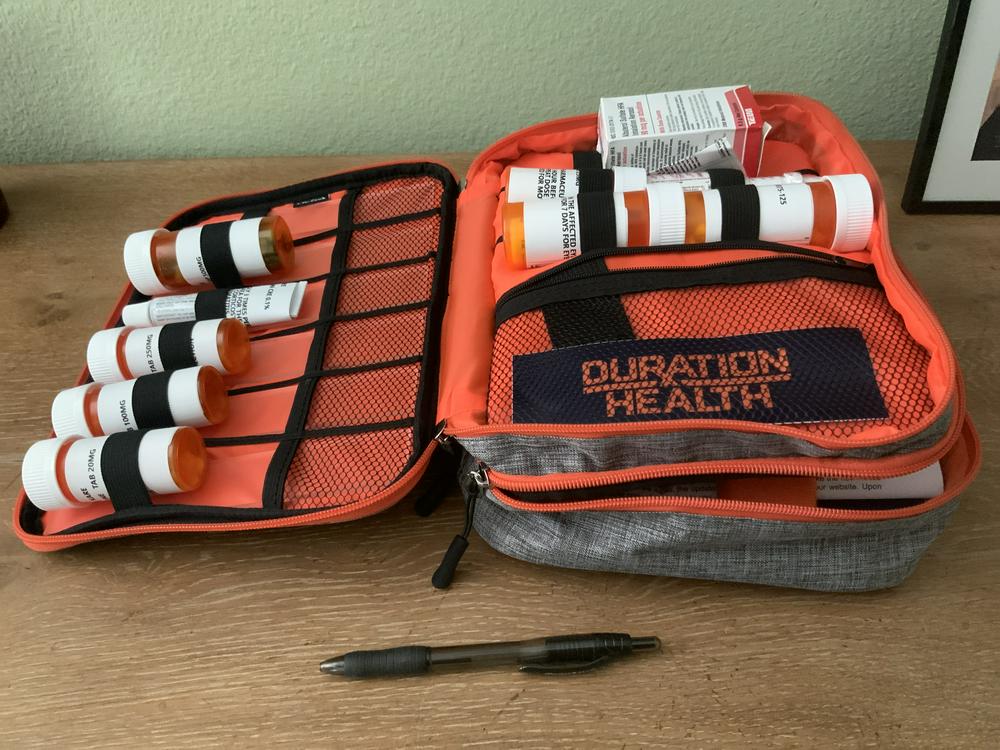
Jason in Oregon
"Super easy process to have piece of mind while we travel the world with our family... Definitely recommend it to anyone traveling away from home for any extended amount of time."
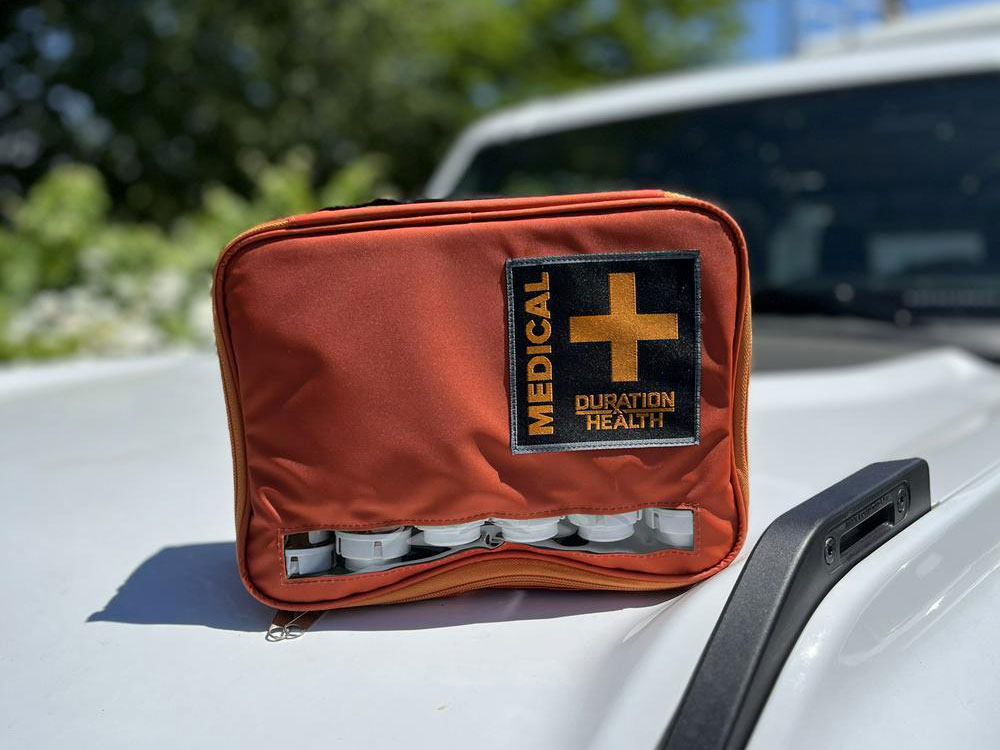
Jeff in Hawaii
"Everything I need and room for more for short notice trips around the Pacific. It’s like an insurance policy in a bottle!"
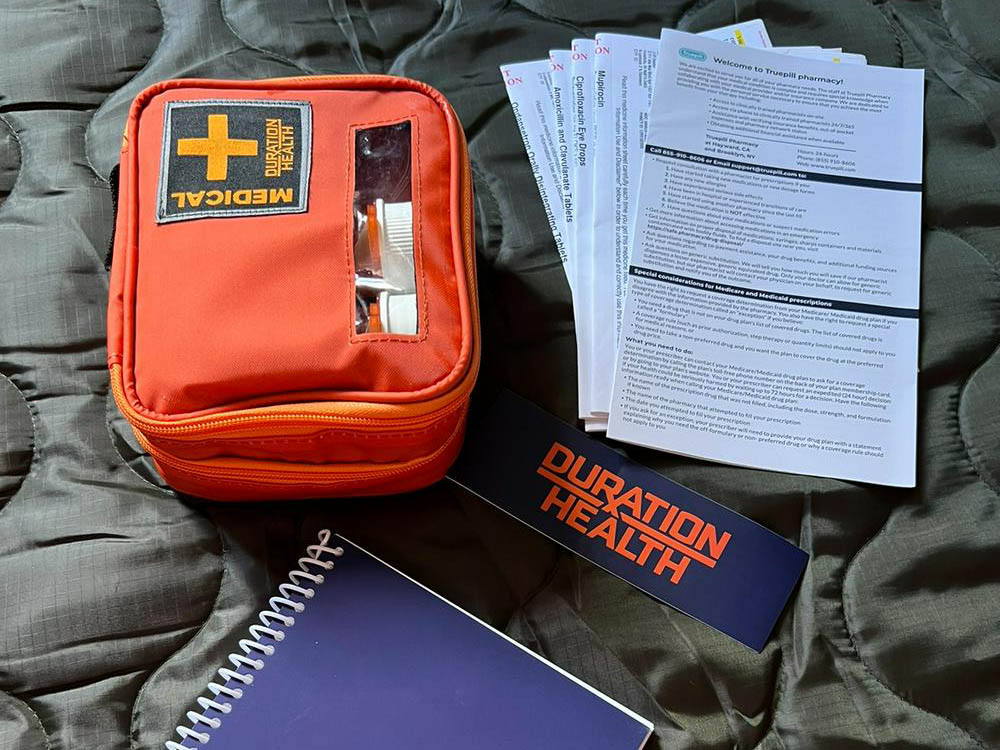
Angela in Florida
"Peace of mind no matter where I roam, that's what this is. I added what I needed and customized my kit. The case had room to add other medical supplies, so I am ready for my kayak expedition."
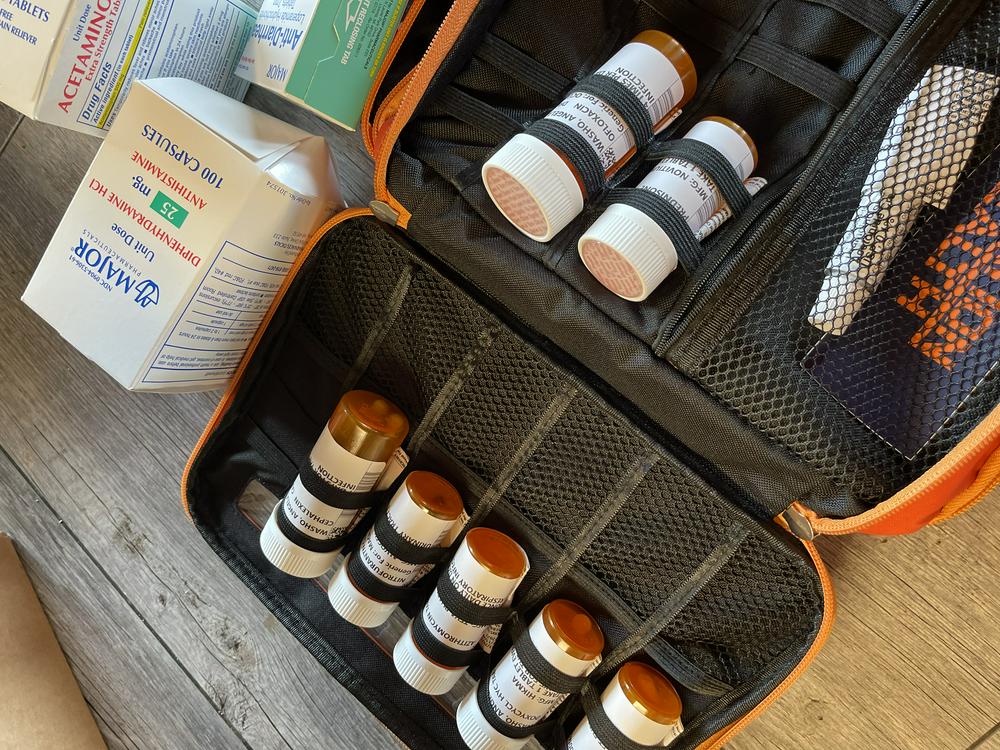
Elizabeth in Illinois
"I appreciate the freedom this allows to "go where there is no doctor." It means that not speaking the language or not having a cell phone connection are no longer a hard block!"
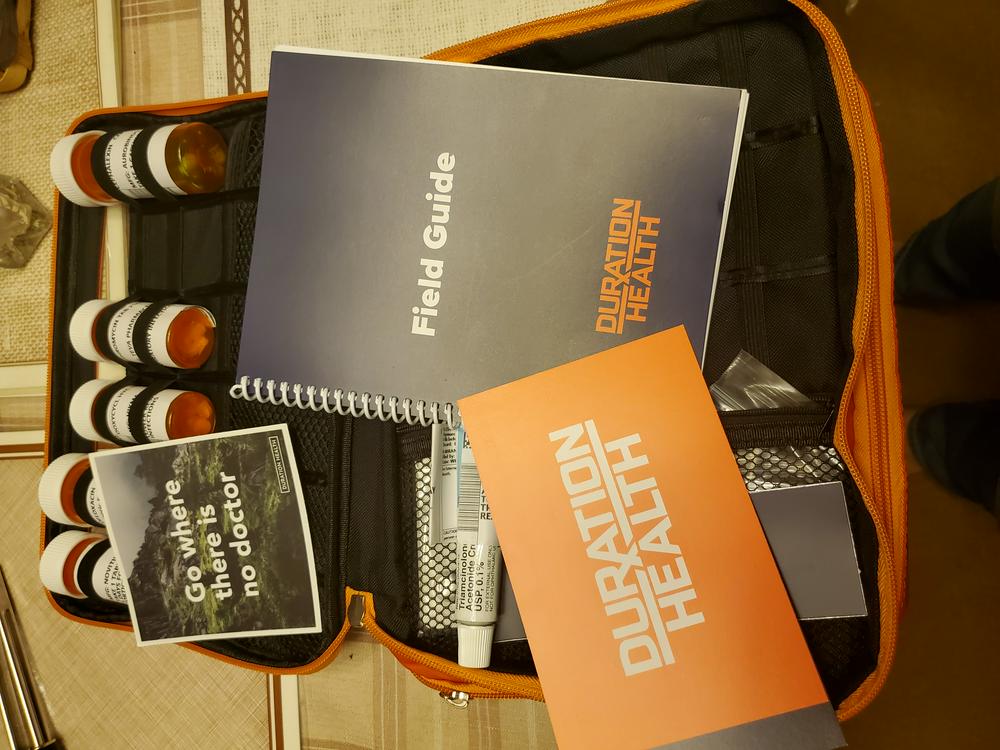
Bring the ER with you.
GO WHERE THERE IS NO DOCTOR
Learn what to do in a medical emergency.
Get the Duration Health Field Guide , plus access to our free email series, Where There is No Doctor . We’ll teach you how to treat the most common medical issues, anywhere.
Got it, thanks!
Error. unable to sign up. email [email protected].
Serving travelers since 2019 and preppers since 2020

Duration Health, Inc. [email protected] 2550 Pacific Avenue, Suite 705 Dallas, TX 75226 (855) 340-8969 Privacy Policy Notice of Privacy Practices Terms and Conditions © 2023 Duration Health Become a Brand Ambassador 🚀 We're hiring!
The off-grid medical kit with antibiotics, EpiPen and emergency Rx. Talk with our doctors online, and get basic prescription medications now — before you need them in an emergency. Only your Duration Health provider can decide, based on your medical history and other factors, whether it is medically appropriate for you to receive prescriptions. We do not sell prefabricated bags of pharmaceuticals. Each Duration Health Med Kit that contains prescription medications is custom assembled, tailored to each individual patient's needs.
Duration Health is not a pharmacy, is not a nonprescription retailer, and does not sell medications directly. To be able to deliver a customized kit of medications, Duration Health has partnered with a third-party mail order pharmacy. You may request that any prescriptions be sent to an alternate pharmacy. Duration Health charges an administrative convenience fee for its services, but Duration Health does not sell prescription or over-the-counter ("OTC") drugs, mark-up the cost of prescription or OTC drugs, or retain any portion of the fees our affiliated pharmacy charges to you. Nor does Duration Health provide medical advice about or prescribe OTC medications. In states where Duration Health’s physician consultation services are not offered, Duration Health only offers OTC products and does not provide clients with access to obtain a physician consultation. Clients are free to purchase OTC medications of their choice as an OTC-only kit.
You must complete the included online telehealth visit, including a complete medical history and ID verification, before any prescriptions are issued. You may not be eligible to receive items pictured or described on this site. Furthermore, renewal of your prescriptions is contingent upon continued medical appropriateness. Generics only. Brand names are listed on our site for your reference, but in most cases, only generic (non-brand) medications are included in our Med Kits. No controlled substances. Our formulary excludes controlled substances like opioids, benzodiazepines, and other potentially addictive medications. Treatment not guaranteed. No medication is guaranteed to work or guaranteed to treat a particular condition or disease. Use medications only as directed by a physician. Medication uses listed on this site are for educational purposes only and are not intended to represent indications for treatment. Email support only. Our providers are available via email to answer questions about your Med Kit. For non-emergency use only. In an emergency, call 911 or seek local emergency care. No routine care. Duration Health email support cannot be used for routine primary care. Medications prescribed by Duration Health cannot be used for routine purposes. This product is intended only for people who are unable to obtain regular medical care. You must anticipate living, working or traveling where care is unavailable. As a condition of purchase, you must consent to use of these medications only when regular access to medical care is unavailable. Your eligibility for Health Savings Account (HSA) or Flexible Spending Account (FSA) payment and reimbursement is not guaranteed; consult with your health plan, a qualified accountant, or a tax professional to determine your eligibility for reimbursement. Duration Health does not provide or claim to provide any medication or other item to prevent, treat or cure COVID-19.
The information provided on this site is intended for your general knowledge only and is not a substitute for professional medical advice or treatment for specific medical conditions. You should not use this information to diagnose or treat a health problem or disease without consulting with a qualified healthcare provider. Please consult your healthcare provider with any questions or concerns you may have regarding your condition. If you think you may have a medical emergency, call your doctor, go to the emergency department, or call 911 immediately.
We maintain partnerships with various publishers and content creators to promote our products and services. These partners may receive payments as a result of your actions on our website, including, but not limited to, clicking on links, creating an account, or signing up for newsletters or other promotional materials. The compensation we provide to our partners may influence the content, topics, or posts featured on our website, but it does not affect the quality, integrity, or accuracy of the information provided.
The testimonials featured on our website are provided by real customers who have purchased our products and services. These testimonials are based on their personal experiences and opinions. It is important to note that your experience with our products or services may differ from the experiences and opinions expressed in the testimonials. You may not achieve similar results or experiences as those described in the testimonials.
See our Frequently Asked Questions (FAQ) , Privacy Policy , Notice of Privacy Practices and Terms and Conditions for more important disclaimers.
LEARN WHAT TO DO IN A MEDICAL EMERGENCY
Get your free PDF copy of The Duration Health Field Guide plus access to our free email series Where There Is No Doctor .
Our 122-page emergency medical reference for 70+ Rx and OTC medications.
We respect your privacy. Unsubscribe anytime. Learn more in our privacy policy.
Masks Strongly Recommended but Not Required in Maryland, Starting Immediately
Due to the downward trend in respiratory viruses in Maryland, masking is no longer required but remains strongly recommended in Johns Hopkins Medicine clinical locations in Maryland. Read more .
- Vaccines
- Masking Guidelines
- Visitor Guidelines
Traveler's First-Aid Kit
What should a traveler's first aid kit include.
The American College of Emergency Physicians and the CDC encourage travelers to pack a first aid kit or a travel health kit for common medical emergencies. Pack the following items in your carry-on bag and keep it with you at all times:
Medicines you take on a regular basis at home. Take enough medicine for the planned trip plus extra in case your return home is delayed. Carry all medicine in their original containers with clear labels that identify your name and dosing schedule. If you have a chronic condition, such as diabetes, seizures, or allergies, consider wearing a medical alert bracelet.
Acetaminophen, ibuprofen, or aspirin to relieve headaches, pain, fever, and simple sprains or strains
Antihistamines to relieve allergies
Antacid medicine for upset stomach
Anti-nausea or motion sickness medicine. You may also want to include medicine for altitude sickness if traveling to high altitudes.
Antibacterial hand wipes or an alcohol-based hand cleaner (should contain 60% alcohol or more)
Masks, disposable or cloth
Bandages of assorted sizes to cover minor cuts and scrapes
Bandage closures, such as butterfly bandages, to tape edges of minor cuts together
Triangular bandage to wrap injuries and make an arm sling
Elastic wraps to wrap wrist, ankle, knee, and elbow injuries
Gauze in rolls, as well as 2-inch and 4-inch pads, to dress larger cuts and scrapes
Adhesive tape to keep gauze in place
Scissors with rounded tips to cut tape, gauze, or clothes, if necessary. Note that this may not be allowed in your carry-on bag if traveling by air.
Safety pins to fasten splints and bandages
Antiseptic wipes to disinfect wounds or clean hands and tweezers, scissors, or other utensils. Some of these items may not be allowed in your carry-on bag if traveling by air.
Antibiotic ointment to prevent infection in cuts, scrapes, and burns
Hydrogen peroxide to clean and disinfect wounds
Disposable, instant-activating cold packs to cool injuries and burns, as well as for use in strains and sprains
Tweezers to remove small splinters, foreign objects, bee stingers, and ticks from the skin. Note that this may not be allowed in your carry-on bag if traveling by air.
Disposable rubber gloves to protect hands and reduce the risk for infection when treating wounds
Thermometer (no mercury and no glass) to take temperatures in case of illness
Calamine lotion to relieve itching and irritation from insect bites and poison ivy
Hydrocortisone cream to relieve irritation from rashes
Sunscreen of SPF 15 or higher
Aloe gel for sunburns
Insect repellent. Those appropriate for use on children should contain 10% to 30% DEET. Those for adults should contain 30% to 50% DEET or up to 20% of picaridin. The chemical can cause harm when absorbed through the skin. Don't use insect repellant on infants 2 months of age or younger. Don't use products that combine DEET with sunscreen.
Medicine to prevent malaria, if needed where you are traveling
Over-the-counter medicine for diarrhea. Talk with your healthcare provider about a prescription for an antibiotic you can take in case of diarrhea.
Cough and cold medicines
Epinephrine auto-injector for people with severe allergies
List of prescription medicines and generic names
Latex condoms
Water purification tablets
Extra pair of contact lenses or prescription glasses
Follow the same safety measures with the medicines in your first aid kit as you do with all medicines, and use only as recommended by your healthcare provider. Make sure children can't get into the first aid bag. Use child safety caps whenever possible. Also be aware of volume limits in carry-on bags. Some of these items may need to be packed in your checked luggage while flying. Check expiration dates and discard medicine that is out-of-date. If someone has a life-threatening allergy, carry the appropriate medicine with you at all times.
Find a Doctor
Specializing In:
- Travel Medicine
At Another Johns Hopkins Member Hospital:
- Howard County Medical Center
- Sibley Memorial Hospital
- Suburban Hospital
Find a Treatment Center
Find Additional Treatment Centers at:
Request an Appointment

Food Poisoning
Fish Poisoning
Enterohemorrhagic Escherichia coli
- Type 2 Diabetes
- Heart Disease
- Digestive Health
- Multiple Sclerosis
- Diet & Nutrition
- Supplements
- Health Insurance
- Public Health
- Patient Rights
- Caregivers & Loved Ones
- End of Life Concerns
- Health News
- Thyroid Test Analyzer
- Doctor Discussion Guides
- Hemoglobin A1c Test Analyzer
- Lipid Test Analyzer
- Complete Blood Count (CBC) Analyzer
- What to Buy
- Editorial Process
- Meet Our Medical Expert Board
How to Travel With Medications
Stay Healthy and Save Money
If you plan to travel to a foreign country, it is important that you provide for your medication needs before leaving. An illness in the middle of your trip can ruin your vacation and cost you money to get needed medications.
Depending on the circumstances, buying medications in foreign countries can be expensive. Moreover, in some countries, you may be at risk of getting a counterfeit drug.
By thinking ahead and packing smart, you can stay healthy and enjoy your time. This article will help you understand what you need to know about traveling with over-the-counter and prescription medications.
Organize a Health Kit
The Centers for Disease Control and Prevention (CDC) recommends that travelers assemble a health kit containing current prescription medications and over-the-counter (OTC) drugs that can be used to treat minor problems. What you include in your travel health kit depends upon your destination and length of travel.
You also should anticipate some disruption in travel plans and take extra medication so you do not run out. For example, you do not want to be stuck in an airport for an extra day without your diabetes medication or pain medication used to treat arthritis.
Which OTC Medications Should I Pack?
Since it is not practical to pack your entire medicine cabinet, your travel destination and your itinerary may help you decide which over-the-counter medications to buy for your kit.
For example, you are less likely to have diarrhea from drinking water in Canada than in Mexico. And, if you are planning a walking trip in London, you are less likely to need an anti-motion sickness medication.
The following are some basic medications to consider:
- Anti-diarrhea medication: Foodborne illness is very common and may cause diarrhea in up to 30% of travelers. This is especially common in parts of Central and South America, Africa, and Asia. Pack Imodium (loperamide) or Pepto-Bismol (bismuth subsalicylate).
- Antihistamine: To treat an allergic reaction, pack an antihistamine that will not make you drowsy, such as Claritin (loratadine).
- Anti-motion sickness medication: For a bumpy plane or boat ride, pack some Dramamine (dimenhydrinate).
- Medicine for pain or fever: Pack your preferred painkiller, such as acetaminophen or ibuprofen.
- Mild laxative or stool softener: Changes in your eating routine and access to different foods can cause constipation . Pack a laxative containing bisacodyl such as Dulcolax or a stool softener such as Colace (docusate).
- Antifungal ointment or cream: Fungal infections of the skin, such as ringworm and athlete’s foot are common, especially in warm climates. Pack a tube of Tinactin (tolnaftate) or Lotrimin (clotrimazole).
- Antibacterial ointments or creams: To help prevent a skin infection from a minor cut or scrape, pack a tube of Neosporin Ointment (polymyxin B, bacitracin, and neomycin).
How Do I Manage My Prescription Medications on a Trip?
Before you leave for your trip, see your healthcare provider to get an ample supply of all your prescription medications. Also, talk to your practitioner about your change in schedule and ask when to take medications if you are moving through different time zones.
If you are traveling to a country with malaria , talk with your healthcare provider about getting a prescription for a medication to prevent malaria, such as Lariam (Mefloquine), Malarone (atovaquone, proguanil), or doxycycline (the CDC has a guide to each of the available medications, some of which are recommended for certain areas).
If your destination is a country that puts you at high risk of diarrhea or other bacterial infections, ask your practitioner about the possibility of getting a prescription for an antibiotic, such as Cipro (ciprofloxacin).
Talk to your pharmacist about drug-food interactions. Since your diet may change during your trip, your pharmacist can advise you about foods that could affect your medications.
Pack your travel health kit, including your prescription medications, in your carry-on luggage. Make copies of your prescriptions and pack them with your medications. You should also leave a copy of your prescriptions at home with a friend or family member.
Make a list of your medications, including the generic names and brand names, and what conditions the medications treat. That will make it easier to find a replacement if you run out of or lose your medications .
Will I Have Problems Crossing Borders With My Medications?
If you use a controlled substance, such as a sedative, tranquilizer or narcotic pain medication, make sure you obtain a letter from your healthcare provider, on the practitioner’s stationery, stating why you need the drug.
Without such a letter, these medications may not be allowed into another country or allowed back into the U.S. when you return.
Likewise, you should have a letter from your healthcare provider if you take any medication by injection and you have to carry needles and syringes.
Make sure that all medications are labeled properly. The safest way to carry your medications is in the original bottles, which will also speed the process if your carry-on bags are inspected (this applies to vitamins and supplements as well).
However, if you do not have enough space for the bottles in your carry-on, you can transfer them to small plastic bags. When you have your prescription filled, the pharmacy will give you a print-out that usually has a tear-off section on the top that has the same information as the label on your medication container. You can enclose this tear-off sheet in the plastic bag.
But note that the Transportation Security Administration—TSA— clarifies that although they do not require travelers to have medications in their original pharmacy-provided containers, "states have individual laws regarding the labeling of prescription medication with which passengers need to comply."
You'll also want to make sure that the name on your prescriptions , pill bottles (or tear-off sheet if you're packing your medications in a bag or pill sorter), and ID or passport all match.
If you have a liquid medication, TSA doesn't require it to be less than 3.4 ounces (the rule that applies to most other liquids), but you do need to tell the TSA agent that you have medically necessary liquids in your bag when you start the screening process at the airport.
Even with all of that planning, it's important to also have a clear understanding of the laws and regulations in your destination country. In some cases, you might find that a particular destination's rules simply aren't compatible with a medication that you take , and you may want to consider a different destination instead.
You can discuss the specifics with your healthcare provider, your pharmacist, and the U.S. embassy in the country you're considering visiting . The embassy will be able to tell you whether a medication you take is banned in the country or only allowed in limited quantities.
Where Can I Get More Information Before I Leave on My Trip?
Centers for Disease Control and Prevention: The CDC maintains an excellent Travelers’ Health website that includes a wide range of information about travel issues related to health. One section of the site has an interactive map that provides access to health information for each country. And their traveling abroad with medicine page is a must-read if you're planning a trip outside the U.S. and will need to bring medication with you.
Transportation Security Administration (TSA): The TSA provides online information for travelers with disabilities and medical conditions, and it explains the current requirements for how to go through airport security with medications.
U.S. Department of State: The State Department maintains a travel website that provides a profile about the current status of every country in the world. These profiles include information about health-related issues and often highlight issues with prescription medications.
Transportation Security Administration : TSA has a helpful page about disabilities and medical conditions . It includes a tool that allows you to select from among a range of common disabilities and medical conditions to see exactly what you need to know about the screening process and any steps you might want to take in advance to make it as smooth as possible.
Traveling with medications is common, but does require some advance planning. It's generally advisable to pack medications in your carry-on luggage, and to have copies of your prescriptions with you. Liquid medications can be brought onboard aircraft even in quantities greater than the limits that apply to other liquids, but you'll need to notify the TSA screening agent of your liquid medication. For controlled substances, you'll need a letter from your medical practitioner, explaining why you need the medication. And there are some countries where certain medications simply aren't allowed, even though they're prescribed in other countries.
A Word From Verywell
Staying healthy on your trip can save you a lot of money. Out-of-pocket medical expenses in a foreign country can be enormous. Make sure to purchase travel insurance before you leave and pack your medications !
Centers for Disease Control and Prevention. Travelers' Health .
Centers for Disease Control and Prevention. Choosing a Drug to Prevent Malaria .
Transportation Security Administration. Can You Pack Your Meds in a Pill Case and More Questions Answered .
Centers for Disease Control and Prevention. Traveling Abroad with Medicine .
Mohn, Tanya. New York Times. How to Make Sure You Travel with Medication Legally .
Transportation Security Administration. Disabilities and Medical Conditions ; and TSA Cares: Traveling with Medication ; and Can you pack your meds in a pill case and more questions answered .
By Michael Bihari, MD Michael Bihari, MD, is a board-certified pediatrician, health educator, and medical writer, and president emeritus of the Community Health Center of Cape Cod.

DIY: A Travel Medicine Kit Checklist That Fits in Your Carry On
This post may contain affiliate links. As an Amazon Associate I earn from qualifying purchases.
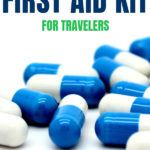
A travel medicine kit is an essential part of packing. Getting sick on vacation is miserable , but sooner or later, it happens to everyone. I seem to get hit with a bad cold every year while traveling (those darn airplane germs!) and my husband is so sensitive to stomach issues we call him “the canary in the coal mine”.
The good news is that it’s remarkably easy to find just about any medication anywhere in the world — but it often takes a big chunk of time, especially if you’re staying in small towns or rural areas where you have to drive a long distance to the nearest pharmacy. And take my word that you don’t want to get food poisoning at 1am and have to wait until morning for a store to open to get supplies.
The faster you can solve your problem, the better. But unlike Mary Poppins, I can’t carry everything all the time — there has to be a balance between having enough to be useful without weighing you down.
After tons of travel, I’ve created a comprehensive, mini first aid kit. This DIY first aid kit is quick and cheap to make plus has all the essentials. When you’re not traveling, throw it in your day bag for local adventures or keep it in your car so it’s always handy.
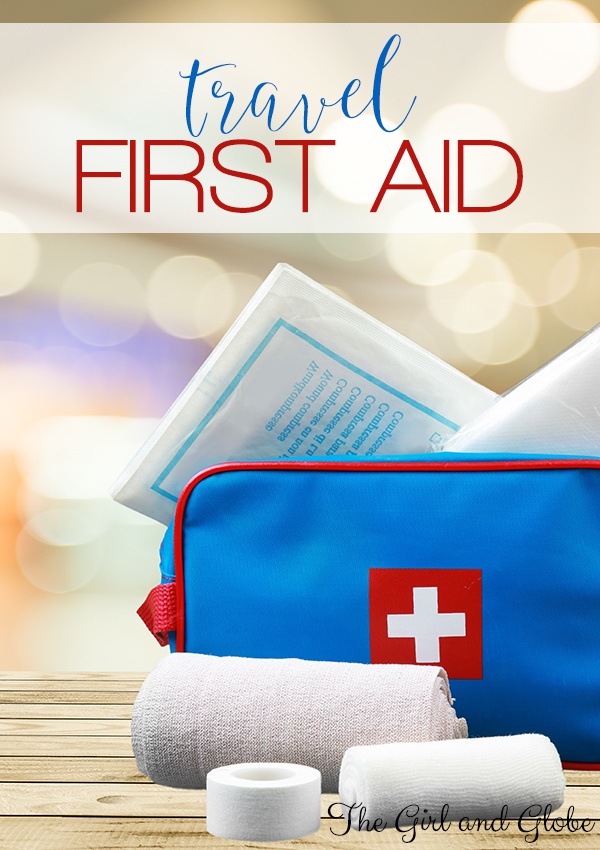
Travel Medicine Kit Basics
Although you can buy a pre-packaged travel emergency kit, I recommend tailoring it to your specific needs. That way you’re 100% familiar with what’s in it ahead of time and have products you trust.
Generally speaking, there are three sets of items that should be on your travel first aid kit list:
- Medications You Definitely Need (prescriptions you use at home on a regular basis + special medications for your destination, such as something to help with altitude sickness)
- First Aid Items You Commonly Use (in my case, that’s band-aids for a myriad of adventure activities + ibuprofen as the “all-purpose drug” for fevers, muscle soreness, and headaches)
- Items You Can’t Get Easily at Your Destination (I include items I’ll want immediately in this category; i.e. anti-diarrheals, so you can solve the problem at 3am instead of running to a store)
Your first aid packing list might change a little for every trip. You can take just the necessities for a weekend in New York City but will need a more comprehensive first aid kit for remote destinations.
Organizing Non-Prescription Medications
No one wants to pack a dozen pill bottles in their carry-on! Besides, it’s highly unlikely you’ll need all 200 aspirin! Better to condense a 2-3 day supply into a more compact case. That’s likely all you’ll need — if that! — but in any case, it’s at least enough to buy you time into you can restock during your trip.
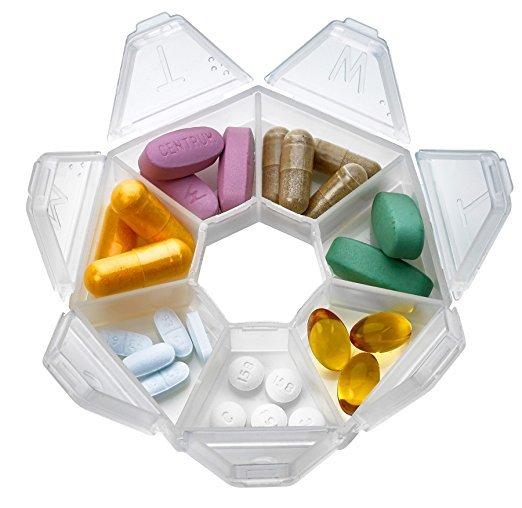
That’s why I use a standard 7-day pill case to organize my over-the-counter medication. Instead of using each compartment for one day’s worth of pills, I use each space for a single type of medicine. So, for example, Monday will hold ibuprofen and Tuesday will hold allergy meds.
Just be sure to label, either by writing with a Sharpie marker right on the case or taping a legend to the back.
I’m sure you can find these pill organizers at your local pharmacy, or you can order a basic pill case on Amazon .
These are the 7 medications I divide in my organizer, although you can tweak it for your own travels:
- Ibuprofen (I prefer it for pain relief but you could easily substitute Tylenol or aspirin)
- Decongestants (after ibuprofen, this is the most reached-for drug I pack; airplanes are a hotbed for germs!)
- Antihistamines
- Anti-diarrheal
- Antacids or indigestion meds
- Motion sickness meds
- For me, it’s lactaid, but this is also a great spot for vitamins or probiotics
Pick the Perfect Bag
My first aid kit is about the size of a paperback book, giving me enough space to work with without weighing me down. I keep it stocked with essentials so I can “grab and go” for most trips without having to worry about a last-minute supply run.

First Aid Kit Supplies:
- My over-the-counter pill box
- Bandages (I prefer ones with built-in antibiotic cream for convenience)
- Antiseptic wipes for minor cuts
- Throat lozenges
- All-purpose first aid balm (hint: Green Goo works great for bites and stings, is all-natural, and the TSA considers it a solid for packing purposes)
- Moleskins for blisters
- Oral rehydration salts – for cases of food poisoning, over-exhertion, or one too many late nights
- Ginger chews (for nausea)
For those of you thinking this is overkill, yes, you can buy premade kits. Here’s the problem: the cheap ones are worthless: you’ll get bandages that don’t stick and so few pills that you’ll be replenishing them after one trip anyway. And you’ll likely get a few medications you’ve never tried before, which would make me really nervous if I was far from a hospital.
The best travel first aid kit is made by Adventure Medical. It’s crazy comprehensive and probably bulkier than need be, but I trust all the medical supplies in it. (Making your own will be cheaper, but obviously not as easy).
Don’t Overstuff Your First Aid Kit Contents
I don’t bother packing items that I don’t use at home, but if these are more common in your household medicine cabinet, you might want to bring them with you while traveling:
- Medical equipment you may need (i.e. syringes, inhalers, epi-pens)
- Aloe wipes or other sun relief items (I may not bring aloe, but I do pack sunscreen!)
- Multi-vitamins and other nutritional supplements
- Antifungal gels or creams
- Separate antibacterial ointment
- Disposable gloves
- Elastic bandage wrap
- Thermometer
- Medical Tape
Remember you don’t need a lifetime supply of everything, so count out what you’ll most likely need and leave the rest at home. I find small GoTubbs to be a good size for packing specialty items.
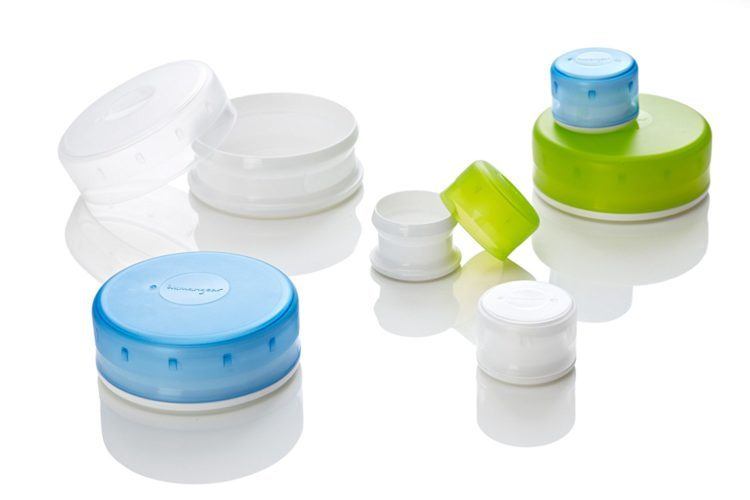
Be Smart About Your Travel Health Your first aid packing list is just one piece of the travel health puzzle. Particularly when traveling abroad, you should start by researching if there are any diseases that are common in that area. The CDC has an official traveler health resource to get you started on things like zika virus, malaria zones, etc. (although I find the UK version easier to navigate). For many destinations, especially in tropical countries and/or developing nations, you may also need to ask your doctor about travel vaccines. Read my complete guide to budgeting for travel immunizations . Lastly, it’s always a smart idea to purchase travel insurance which will help cover health care costs if you seek medical treatment abroad or if you need emergency help. I always purchase through RoamRight , but no matter who you choose, you should educate yourself about policy options .
The Most Important Tips for Your Travel Medical Kit
If you’ve got safe drinking water and health insurance and wash your hands often, that’ll get you most of the way there.
My last piece of advice when it comes to a travel first aid kit is to make sure it’s accessible! If you get a headache onboard an overnight flight but your first aid kit is in your checked suitcase, it does you no good.
Make sure what you need is easy to get to when you need it. That’s a mistake I’ll only make once!
* * *
DIY Travel First Aid Kit List
A first aid kit prepares you for illness, common injuries, and minor accidents. Homemade first aid kits can pack small to fit in suitcases, purses, or cars.
Instructions
Divide over-the-counter medications into small dosages to save on space.
I recommend restocking when you get home from a trip so you're ready to "grab and go" when you pack for the next one!
Recommended Products
As an Amazon Associate and member of other affiliate programs, I earn from qualifying purchases.
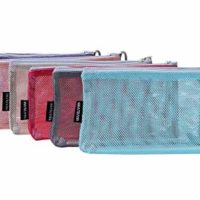
What’s in your travel medicine kit?
Is there something different in your carry-on first aid kit? Do you have other travel tips?
22 thoughts on “DIY: A Travel Medicine Kit Checklist That Fits in Your Carry On”
On every leg of air travel I wear a new paper mask covering nose and mouth. I put it on as soon as the plane doors close, removing it just long enough to eat and drink. Two reasons: 1- So I don’t catch the cold other travelers have; 2- Because the air is so dry on planes, I appreciate being my own humidifier.
Sounds like the perfect size kit. I travel with very little because I tend to purchase meds if I need them at my destination, but anti-diarrhea meds and nausea medications are two that I ALWAYS have with me. Since I lead tours, I can’t be feeling too ill to go out with the group! Those two things usually get me through the day, no matter how sick I am and then I can spend the night in the bathroom if need be, lol.
Before traveling, we prepare our bag with some essential things which we think can be used in journey and first aid bag with proper medication tools is one of those essential things, Make a list of all tools and check before leaving whether all tools present on the list are in the first aid bag or not, I think all tools mentioned in the above post cover everything, but I like the idea of bringing new paper mask, thanks céline bouchard for mentioning this idea in your comment.
Hi can I buy your bag?
@Sabina, What bag do you want to buy? You can make your own easily!
I also bring small scissors to cut the moleskin. One thing about first aid packing that is such a pain is the common recommendation to bring all prescription medications in their original containers, particularly for international travel. On the one hand, that is the safest in case you were to be detained or questioned, but on the other, it adds a lot of bulk to packing that otherwise could be reduced in size. What are your thoughts on that?
@LeRainDrop, Almost everyone I know packs their prescription meds in a pill box rather than original containers. I’d bring a paper detailing meds/dosages + physician’s name and phone number, just in case. (I’d be MORE conservative if you have highly controlled substances, like pain meds)
Thank you so much! I have a handful of prescriptions but no controlled substances, and I got the comprehensive letter from my doctor detailing all my medicines. I wish I found your site earlier, as I’m packing right now for an extended trip to Guatemala in two days, and your site provides a great wealth of info!
Thsis is great info. I’m packing for a trip right now, and will be including these items in my bag for sure.
This is a great list! I never leave home without a fully stocked first aid kit. You never know when the kids are going to hurt themselves.
@Audrey, Or the adults 😉
My wife is responsible for the kit in our family. I’m glad she is, I would have forgotten half of these things!
@Scott, I’d forget too without a list…
Great idea. I never seem to have the right things when I pack. Now I can just use your list and be prepared when we travel. .
Hi Becky, It was great to meet you at WITS17 this year. I always make sure that we have a first aid kit in our car, since we have four children and an accident prone dad of the house!
@Natasha, Pleasure to meet you also…great conference! Funny how sometimes it’s the parents who are more accident prone than the kids.
This is not exactly gear but: Don’t forget to call your wireless carrier to find out what options it offers for traveling wherever you are going. Accidental roaming can be very expensive, and most carriers offer options that are much more economical.
@Paula, Totally true! It’s best to have a set plan that works in your budget or buy a local sim card on arrival.
Pingback: 5 Easy Tricks for Making Your Summer Travel Less Stressful (Hint: Wine is NOT on the List) – A Third Life Crisis
I totally agree with you in that the things you need to pack in your first aid kit will depend on the place where you are going. It is important to understand what type of dangers you might be exposed to in order to have the best supplies on hand to avoid any serious accidents. We are planning on taking a camping trip in a few days and wanted to make sure we had the best first aid kit for the job, so I’m glad I found your page.
@Marcus, Hope your adventure was a success!
Excellent and honest post. I found this much useful information, as to what I was exactly searching for packing tips. Thanks for such post and please keep it up.
Leave a Comment Cancel Reply
Your email address will not be published. Required fields are marked *
Get Daily Travel Tips & Deals!
By proceeding, you agree to our Privacy Policy and Terms of Use .
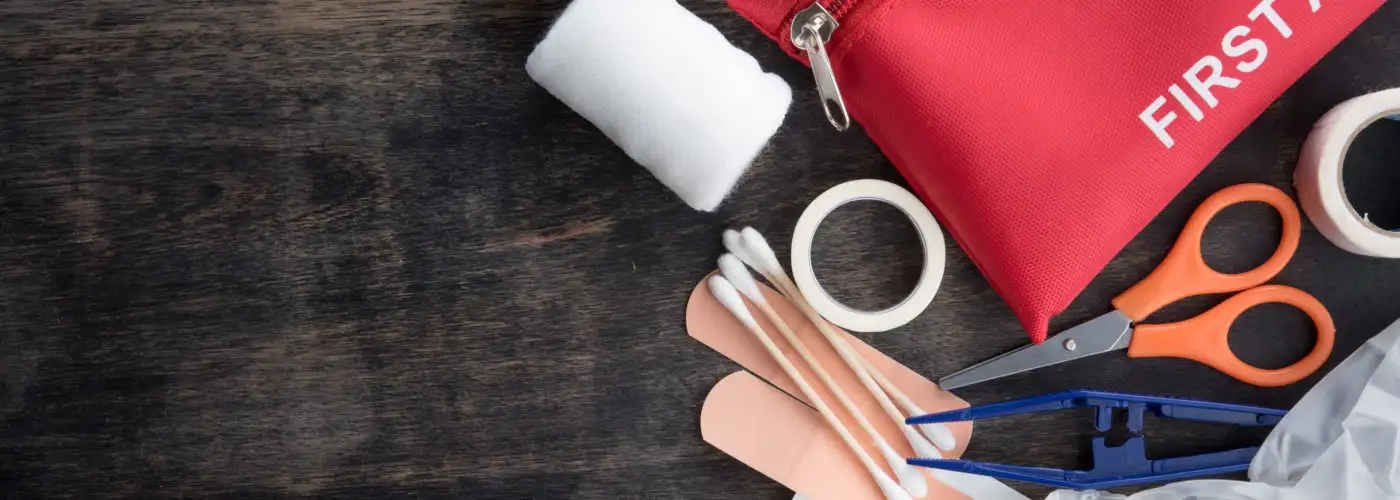
Travel Size First-Aid Kit: What to Pack & Downloadable Checklist
Ashley Rossi
Ashley Rossi is always ready for her next trip. Follow her on Twitter and Instagram for travel tips, destination ideas, and off the beaten path spots.
After interning at SmarterTravel, Ashley joined the team full time in 2015. She's lived on three continents, but still never knows where her next adventure will take her. She's always searching for upcoming destination hotspots, secluded retreats, and hidden gems to share with the world.
Ashley's stories have been featured online on USA Today, Business Insider, TripAdvisor, Huffington Post, Jetsetter, and Yahoo! Travel, as well as other publications.
The Handy Item I Always Pack : "A reusable filtered water bottle—it saves you money, keeps you hydrated, and eliminates waste—win-win."
Ultimate Bucket List Experience : "A week in a bamboo beach hut on India's Andaman Islands."
Travel Motto : "Travel light, often, and in good company."
Aisle, Window, or Middle Seat : "Window—best view in the house."
Travel Smarter! Sign up for our free newsletter.
When you pack for a trip, especially a trip overseas, it’s easy to forget about medications and first-aid. That’s why you should always bring a basic first-aid kit with you on your travels.
I always keep a pre-packed first-aid kit ready to go so I don’t have to think twice about it when I’m packing. Of course, you may need additional items depending on where you’re going and what activities you have planned. But this first-aid kit packing list covers the basics.
15 Tiny Travel Products to Help You Stay Healthy on Vacation
What Do I Need in My Travel First-Aid Kit?
These everyday medications will take care of most common aches and pains that come with a long day of travel.
- Antihistamine
- Antacid tablets
- Hydration pills or electrolyte replenishers
- Cold relief medicine
- Motion sickness relief
- Muscle relaxer
For minor bumps and bruises, make sure you have these emergency first aid supplies in your medical kit.
- Various sized bandages
- Alcohol swabs or antiseptic wipes
- First aid balm or sting relief, anti-itch cream , & antibiotic cream
From treating splinters to sunburns, these miscellaneous items are must-haves in your travel first aid kit.
- Thermometer
- Hand sanitizer
First-Aid Kit Tips
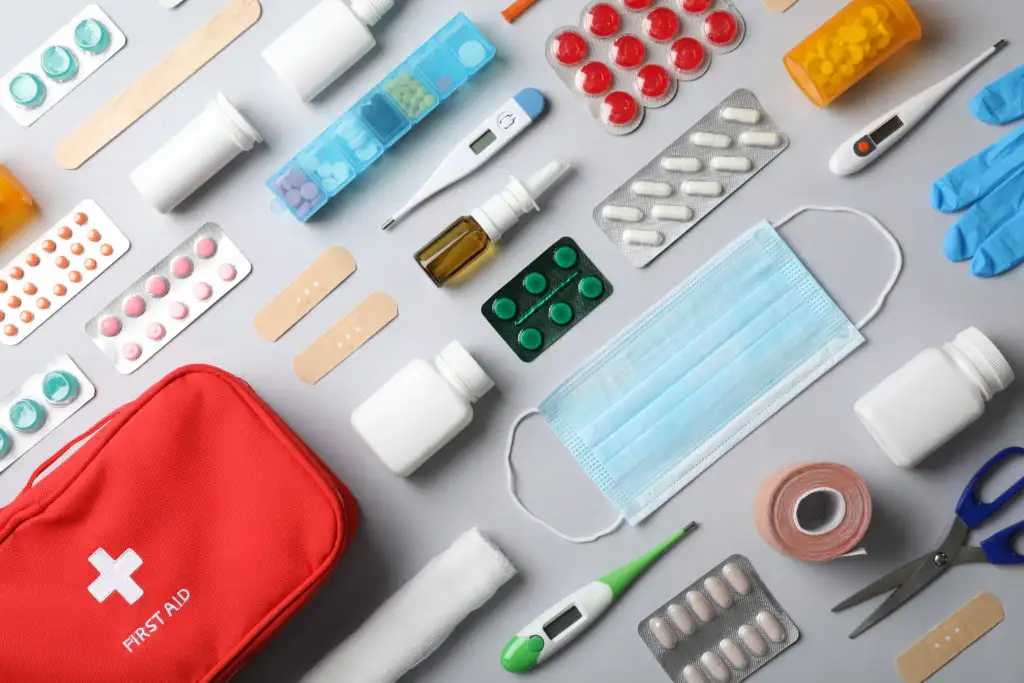
- Look in the school supply section of your local drugstore for a small container, or order a small tackle box from Amazon .
- Only separate medication from its labeled bottle if you know you’ll be able to differentiate pills.
- Keep prescription medications separate from your first-aid kit.
- Include over-the-counter (OTC) medication based on your needs; i.e., if you’re traveling on a cruise and need motion sickness pills, make sure to include those.
- Pack a natural balm like GREEN GOO First Aid , which can relieve symptoms for dry skin, insect bites, scrapes, rashes, chafing, cuts, sunburns, blisters, and poison ivy.
- Include various-sized bandages ; they double for blister protection if you plan on doing a lot of walking.
- Hand sanitizer , a small tissue pack , lip balm , and sunscreen are also must-haves.
- Be sure to fill out the Medical ID on your iPhone and list any allergies, emergency contacts, and your doctor’s information.
- Keep a laminated copy of your COVID-19 vaccination card accessible during your travels as well as a photo of your card available on your phone.
- Remember to pack extra face masks if you plan on visiting a destination or attending an event where masking is required
Download and print this checklist to make your own travel first-aid kit.
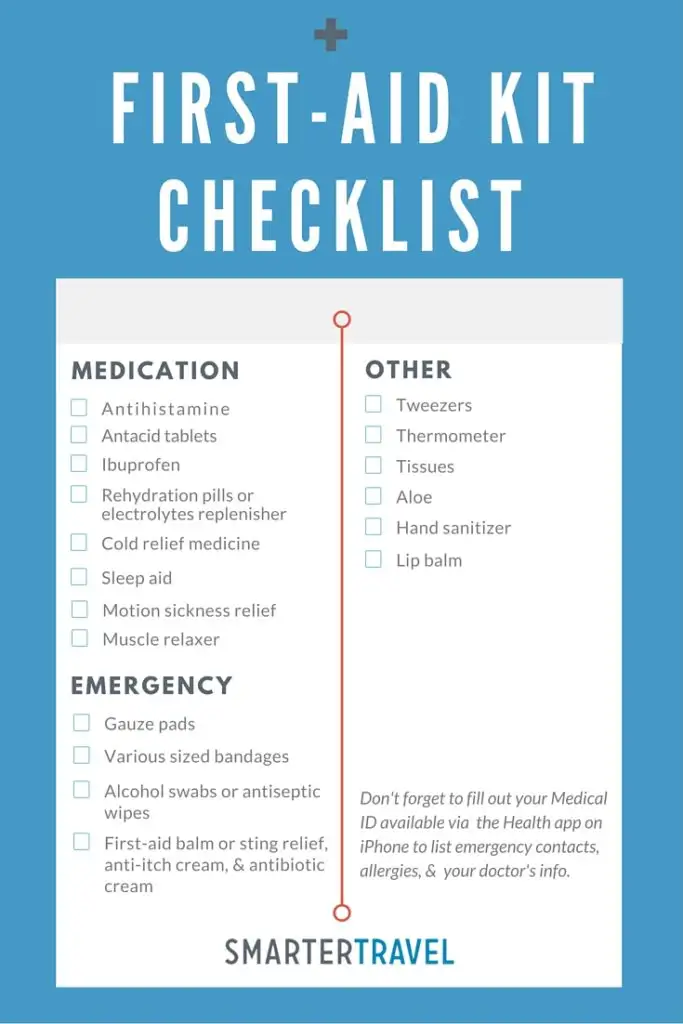
Editor’s note: This story was originally published in 2016. It has been updated to reflect the most current information.
All of the products featured in this story were hand-selected by our travel editors. Some of the links featured in this story are affiliate links, and SmarterTravel may collect a commission (at no cost to you) if you shop through them.
You Might Also Like:
We hand-pick everything we recommend and select items through testing and reviews. Some products are sent to us free of charge with no incentive to offer a favorable review. We offer our unbiased opinions and do not accept compensation to review products. All items are in stock and prices are accurate at the time of publication. If you buy something through our links, we may earn a commission.
Top Fares From

Don't see a fare you like? View all flight deals from your city.
Today's top travel deals.
Brought to you by ShermansTravel
Greece: 6-Night Athens, Nauplia, Olympia &...

Luxe, 7-Night Caribbean & Mexico Cruise...
Regent Seven Seas Cruises

Ohio: Daily Car Rentals from Cincinnati

Trending on SmarterTravel
- Skip to main content
- Skip to site information
Language selection
Help us to improve our website. Take our survey !
Travel health kit
Why should i take a health kit when travelling.
A basic travel health kit is important no matter where you travel. First aid supplies and medications may not always be readily available in other countries or may be different from those available in Canada.
A good travel health kit contains enough supplies to prevent illness, handle minor injuries and illnesses, and manage pre-existing medical conditions for longer than the duration of your trip.
What should I pack in my travel health kit?
Basic first aid items.
It is essential to know how and when to use the first aid supplies in your kit. You may consider taking a first aid course before you travel.
You may want to include:
- Adhesive bandages (multiple sizes) and adhesive tape
- Alcohol-based hand sanitizer
- Antiseptic wound cleanser (for example, alcohol or iodine pads)
- Blister pads or moleskin
- Disposable latex or vinyl gloves
- Packets of oral rehydration salts
- Safety pins and scissors
- Tensor bandages for sprains
- Thermometer
- Tweezers for removing ticks, splinters etc.
Travelling with medications
Discuss the use of medications with your health care provider before departure and carefully follow the directions for use, including dosage and when to seek medical care. Bring more than enough medication to last your entire trip . Consult our Travelling with medications and What you can bring on a plane pages for more information.
Here is a basic list of medications to be included in your travel health kit:
- Any prescription or over-the-counter medication you normally use
- 1% hydrocortisone cream to treat minor skin irritation, such as itching caused by bug bites or poison ivy
- Allergy medication, such as an antihistamine, or epinephrine prescribed by your doctor, such as an Epinephrine auto-injector (EpiPen®)
- Anti-diarrheal medication
- Anti-motion sickness medication
- Antifungal and antibacterial ointments or creams to apply to wounds to prevent infection.
- Cold and flu medications, such as decongestants, cough suppressants or throat lozenges
- Pain and fever medication, such as acetylsalicylic acid (e.g., Aspirin®), ibuprofen (e.g., Advil®), or acetaminophen (e.g., Tylenol®)
- Stomach and intestinal medication, such as antacids and laxatives
- If recommended, destination-specific medication, like those for malaria or high-altitude sickness
- If you need to use needles or syringes, take more than enough to last for your entire trip and carry a medical certificate from your health care provider explaining that the needles or syringes are for medical use.
Other items
You may include these items depending on personal preference, destination, and activities:
- Aloe gel for sunburns
- Adequate supply of condoms
- Ear plugs to reduce noise or stop contaminated water from entering the ear canal
- Extra pair of glasses or contacts (or a copy of your prescription)
- Insect repellent containing DEET or Icaridin
- Mosquito net
- Saline eye drops
- Water purification filter or tablets
Contact card
Carry a card with the following information in case of a medical emergency:
- Name, address, and phone number of a family member or friend in Canada
- Name and phone number of your health care provider in Canada
- Address and phone number of your accommodations at your destination(s)
- Address and phone number of hospitals or clinics at your destination(s)
- Address and phone number of the Canadian Embassy, Consulate, or High Commission in your destination country/countries (you might also consider carrying the Emergency Contact Card )
- Emergency contact phone number from your travel health insurance provider
Before you go, don’t forget to register with the Registration of Canadians Abroad service and stay connected to Canada in case of an emergency abroad or at home.
Proof of your insurance coverage
Always carry proof of your health insurance coverage when travelling. Consult our page on travel insurance for more information.
Immunization record
Carry a copy of your immunization record in your travel health kit. Include your original International Certificate of Vaccination or Prophylaxis for yellow fever, if you have one.
For a printer-friendly travel health kit checklist, click here .
- Sickness or injury
- Insect bite prevention
- Travelling with medication
- Receiving medical care outside Canada
- Travel insurance
- Vaccination
- What you can bring on a plane

Go. Explore.
(480) 435-2774
What to Pack in a Medical Travel Kit
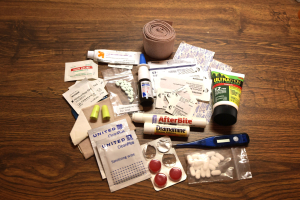
Travelers often ask what they should put in a travel first aid kit or medical kit for travel. Commercial pre-packaged travel first aid kits are available in a variety of sizes, but we think the best option is to assemble your own travel medical kit that suits your personal health needs and travel habits.
It may take a few trips and trials to refine your kit's contents, but then you can keep it all together in one compact package to throw in your luggage at a moment’s notice.
My own “travel health kit” has evolved over time, usually by adding items I wish I’d had on a previous trip. Here are some key considerations and items to include:
Buying medications in foreign countries
Medications, even over-the-counter ones, often have different names or formulations in other countries. To avoid confusion, it’s best to bring familiar medications with you. It's also unlikely that you'll conveniently find a nearby pharmacy with your language spoken, the right product in stock, and open hours when needed. With the booming world trade in counterfeit medications, you want to avoid unknowingly buying a medication that is not effective, or worse can contain harmful ingredients.
Travel Vaccines and Routine Vaccines
Vaccines offer powerful protection against many diseases and should be part of your pre-travel preparation. Consult a travel health expert who can determine which vaccines you may need for your destination.
Do I need any special travel medications?
Some travel specific medications can be required for certain destinations or activities. These can include medications to prevent malaria or altitude sickness (also called prophylaxis). A travel health expert can provide the best guidance and prescriptions specific to your itinerary.
Should I Bring Antibiotics when I travel?
Travelers frequently request “antibiotics just in case”, but the only recommended antibiotic is to treat travelers’ diarrhea (to take as needed only). Other illnesses that you think may need an antibiotic warrant a proper medical evaluation, especially in tropical regions.
Traveling with Prescription Medications
When traveling, ensure your prescription medications are clearly labeled in their original containers. Be careful traveling with controlled substances (like opioids or stimulants), which may be scrutinized and even confiscated in some countries. See your prescriber well in advance of your trip and always carry extra doses in case of unexpected travel delays.
Bring your Medical History Information with you
Carry a legible (laminated if possible) card listing your medical conditions, prescription medications, allergies and any implanted devices. Also include contact information for your primary medical provider and emergency contact(s).
Should I carry an Epi-Pen when I travel?
ALWAYS carry a fresh Epi-pen® (epinephrine injector) with you if you have any serious allergies. Some destinations may not have nearby emergency care available. Also, consider a medical alert bracelet (even if you only use it for travel). If you become seriously injured or unconscious, you may be unable to communicate any serious medical conditions or allergies.
Should I bring my CPAP device when I travel?
If you use a CPAP device for sleep apnea, don’t leave it at home. Fortunately, modern CPAP machines are smaller and more portable. Restful sleep is even more critical when you are traveling or sleeping at an increased altitude.
OTC (over the counter) Pain Relievers
Also known as analgesics, these medications may have unfamiliar names abroad. I suggest packing a small amount of ibuprofen and/or acetaminophen, whichever works better for you. Familiarize yourself with the maximum safe dosage of each.
Loperamide for travelers’ diarrhea
Loperamide (Imodium®) is an essential treatment for travelers’ diarrhea, and a MUST HAVE item for anyone traveling to a resource poor country where you can’t drink the water. Even the local food is sometimes enough to make you “irregular”. Use it cautiously to avoid constipation.
Antacids/Laxatives for travel
An altered eating routine and unfamiliar foods can mess with your digestive tract. Everyone has their own unique gut habits and food tolerances. Personalize choices to your own needs. Chewable bismuth salicylate (Pepto Bismol®) can help with a variety of symptoms, from diarrhea to heartburn.
Cold remedies for traveling
Most mild upper respiratory infections (like a cold) will get better on their own, but the symptoms can be a nuisance. OTC cold preparations are numerous, but I recommend oxymetazoline (generic for Afrin®) nasal spray (DO NOT use for more than 3 or 4 days in a row) and lozenges for sore throat and/or irritating cough. Both can help you get much needed sleep.
Antihistamines
Numerous OTC choices are available and can be helpful if you encounter unfamiliar allergens at your destination or accommodations. Most antihistamines can cause sedation as a side effect, which could be a benefit if you have trouble sleeping on long haul flights.
Medications to Prevent Motion Sickness
Some travelers are prone to motion sickness on boats, in vehicles or even snorkeling or diving. Both prescription and OTC preventive medications are available. See https://www.travelbughealth.com/bugs-blog/medications-to-prevent-and-treat-motion-sickness for more detailed suggestions.
Insect Repellant
Insect repellent is crucial for protection against insect-borne diseases like Malaria or Dengue Fever. Ultrathon® lotion containing DEET is an excellent choice.
Pack only what you need
Don't expect a travel first aid kit to cover every possible emergency; you DON’T need to have every possible thing in it (even if you always pack a prom dress - “just in case”). Plan for likely situations (such as sun, insect bites, terrain, boat rides) and only include things that you regularly use, would grab out of your own medicine cabinet, or have used within the last year. Here are some suggestions:
Essential travel First Aid Kit items
A personal Travel First Aid Kit should include a few basic items to treat minor physical injuries. Don’t go overboard. Minor skin wounds should be cleaned and covered immediately, until you have time to get them treated more thoroughly if needed. Here are some items to consider:
Self-adhesive bandages – Both small and large - have a few of each.
Topical antibiotic ointment – I recommend a small tube of Bacitracin.
Antiseptic wipes - Alcohol swabs are good for disinfecting small scratches or abrasions. I like the disinfectant wipes they hand out on some airlines, which are compact and can effectively clean up a road rash.
Zinc Oxide barrier cream – Think babies’ bottoms and Ozzie surfers. Excellent relief for friction rash from trekking through a wet jungle (personal experience) or an irritated bottom from diarrhea. Also, an effective substitute if you forget your sunscreen.
Compression bandage – Can be used to wrap an ankle, other sprain or even a wound. Find one with Velcro so you don’t need pins or adhesive tape.
Non-stick wound pads - (Telfa®) - Carry a few, preferrably self-adhesive.
Adhesive Blister Prevention tape or pads – Brand names include Moleskin® or Compeed®. KT Tape® (often used by sports trainers and physical therapists) can also work in a pinch.
Sunscreen – Get a travel size. SPF 30 is adequate. Use it.
Post-sunburn cream – Aloe gel preparations can provide good relief and speed healing.
Hydrocortisone cream (OTC 1%) – Offers relief from most itchy rashes.
Afterbite® – A unique product, the size of a makeup pen that provides relief from itchy insect bites.
Tweezers – To remove ticks or splinters. These can be very small and DO pass TSA screening regulations.
Disposable gloves – (bring a handful) They stuff easily and can be useful in so many situations.
Oral rehydration salts – It’s not a bad idea to have a few packets handy if you are visiting a cholera or typhoid endemic area, but if you are losing fluids that fast, you should seek medical treatment.
Small thermometer – Any persistent temperature over 100.4°F (38°C) can indicate a serious illness and should be evaluated by a medical professional.

Other Assorted items for your travel health kit
Ear plugs - Tiny and useful on airplanes and noisy accommodations.
Lubricating eye drops – These are usually very compact and provide instant relief, especially if you’re traveling somewhere dry and windy or wear contact lenses.
Masks – Bring at least 2, just in case. Masks are proven to reduce your chance of airborne illnesses, like from that coughing passenger in the plane seat next to you. A mask can also help you breathe easier in cities with air pollution (think Delhi). Wearing a mask also non-verbally communicates your desire to be kept at a distance. N95 or KN95 (Chinese made equivalent) standard masks work the best.
Condoms - Both men and women should carry them. Don’t laugh. Data shows that travelers are often less inhibited and take more risks when away from home. There is a very high incidence of STDs (sexually transmitted diseases) including hepatitis B and HIV in many regions overseas.
And finally…
Quart-size sealable freezer bags (Ziplok®)
The universal MUST HAVE. I don’t think you can have enough, for many reasons. They are:
- A convenient container for any small items, like collectibles, change, electronics or jewelry (I like to use them beachcombing)
- A neat and convenient lunch bag in a pinch
- The perfect container for your travel health kit items.
- Still the standard for presenting liquids at many airport security checkpoints
- Good for storing wet items or as an extra precaution for containers that could leak in your bags.
An illness or injury can signifcantly impact your travel experience. Think ahead and be prepared with a little bit of knowledge and a few compact items in your travel medical and first aid kit. Visit https://www.travelbughealth.com/ for more travel health tips and advice.
Thanks for visiting! GoodRx is not available outside of the United States. If you are trying to access this site from the United States and believe you have received this message in error, please reach out to [email protected] and let us know.
- Search Please fill out this field.
- Manage Your Subscription
- Give a Gift Subscription
- Newsletters
- Sweepstakes
We independently evaluate all of our recommendations. If you click on links we provide, we may receive compensation.
- Travel Products
- Travel Accessories
The 10 Best Travel Pill Cases of 2024
These are the best pill cases ranging from a one day to one month supply.
:max_bytes(150000):strip_icc():format(webp)/EmilyHochbergHeadshot-632d1cecf3744889bdcca7de874d840d.jpg)
In This Article
- Our Top Picks
- Tips for Buying
Frequently Asked Questions
- Why Trust T + L
Travel + Leisure / David Hattan
Nothing can throw you out of a routine quite like travel. Often that’s a good thing. Traveling allows for the spontaneity of exploration, and removing the push and pull of a daily grind can feel liberating.
But in some cases, losing the normalcy of your day-to-day life can disrupt important tasks like taking your vitamins and important medications. When you’re away from home, jet lagged, or off your normal schedule, forgetting to take an essential prescription, supplement, or vitamin can be a liability for your health.
A pill case is a must for anyone who needs to take any kind of medication while on the go, and ideal travel options are compact and secure so no tablets wriggle loose. We’ve selected the best ones to fit a range of capsule quantities and sizes, including a surprisingly stylish top pick with clever design features.
Best Overall
Port & polish am/pm pill organizer.
It can fit a week’s worth of medication with clear separation for morning and evening doses.
The mirror feature may feel unnecessary to some.
Too many pill cases we considered appeared the same: made from cheap-looking plastic in what was, essentially, the standard Monday to Sunday pill cases we remember watching our grandparents tote around (just in brighter colors.)
This Port & Polish case feels modern, and is an upgraded version of their tried-and-true weekly case with the addition of AM and PM slots for twice daily medications. It more closely resembles a cosmetics compact than a piece of medical equipment, and depending where you purchase it, comes in either blush, black, or mint green. The addition of a mirror means it doubles as a compact for on-the-go touch-ups. While that feature might not appeal to all, it’s an added perk that made it stand out from the rest.
The Details: 7.5 x 4.5 x 1 inches | BPA-free plastic | 7 compartments
Best Weekly
Auvon imedassist weekly pill organizer.
The clearly labeled and color-coded compartments fit all pill sizes, and the push-button spring design makes it easy to open and close.
There are no separate compartments for morning and evening doses.
Unlike many other Monday through Sunday pill cases, this spring-assisted design can be open or closed with one hand so it’s easy to operate on the go. All lids are colorful and clearly marked, and the compartments are large enough to fit eight fish oil pills or 12 large vitamins, if needed. We also like how the compact plastic case is BPA-free and also includes a 12-month warranty.
The Details: 8.84 x 2.1 x 1.04 inches | BPA-free plastic | 7 compartments
Most Compact
Ppfish portable daily pill case.
This case is about the size of your thumb and comes in unique colors like rose gold and bright green.
Given its diminutive size, the container will only fit small pills like aspirin, ibuprofen, and small vitamins.
Made from anodized aluminum, this case is our top option for those who travel with just a few small pills but don’t want to sacrifice style.
With a diameter of just one inch, it's similar in size to a small lip balm. The case is waterproof with a rubber O-ring to protect its contents, and we like how it could be used for other small valuables such as rings, earrings, and earplugs. The color options are also more interesting than others we saw at this size and price, including matte black aluminum and (our favorite) rose gold.
The Details: 3.15 x 2.13 x 0.91 inches | Anodized aluminum | 1 compartment
HRX Pill Box Case
All seven compartments pop out in case you want to carry just the day’s doses (and then tuck away nicely inside a carrying case).
If you take medication more than twice a day, you’ll need a case with more compartments.
Sometimes, a one-a-day isn’t enough, and there are pills that must be taken in the morning, night, or both. This case makes it easy to stock up on twice-daily meds with compartments that are split into two separate spaces so there’s no forgetting a dose.
The color-coded, translucent containers made from BPA-free plastic are clearly labeled for the time of day, and are small enough to individually fit in your pocket. Each canister pops into a case that holds all seven containers in place so there’s no worry about them falling out and rolling around inside a bag or suitcase. The organizer is under $10, making it one of the most budget-friendly options on this list.
The Details: 3.98 x 2.52 x 1.81 inches | Plastic | 14 compartments
Best Multi-pack
Qeedy 4-pack pill organizer.
This set comes with four waterproof cases and a package of labels so you can customize the organizer to each person’s individual needs.
The compartments come in different sizes, so large pills might not fit in smaller spaces.
This set of four cases is great for a family who needs one case per person. Each organizer has eight compartments, and a set of blank labels are included so you can label the case, by pill type, dosage time, or day of the week.
The cases are small enough — about the size of a credit card — to fit in a pocket, purse, or small bag, and made from BPA-free plastic with a silicone ring and a snap-shut lock for a secure seal. Unlike other cases, the compartments are different sizes, which can be a pro or a con depending on your family’s specific needs.
The Details: 7.17 x 4.76 x 2.95 inches | BPA-free plastic | 8 compartments each
Best Luxury
Ikigai weekly pill case.
Sleekly designed for minimalists, this case offers customized engravings, and is small enough to pack away anywhere you wish.
If you want to pack large vitamins, take twice daily doses, or are traveling for longer than a week, you’ll have to upgrade to a larger model.
Forget brightly-colored plastic or large carrying cases. This streamlined option made from anodized aluminum is a minimalist’s dream with clean-cut edges and hidden storage.
But despite a demure design, the features are thoughtful. Made of a corrosion-resistant material, the case features a traction pad that makes it slide open with ease and comes in a slew of vivid colors and engraving options to imprint days of the week or your name across the front. And, with a lifetime warranty, consider this the last pill case you’ll ever buy.
The Details: 7.25 x 1.75 x 0.75 inches | Anodized aluminum | 7 compartments
Best Customizable
Cadence the originals set.
These aesthetically-pleasing containers are as functional as they are beautiful.
It costs extra to print words on the removable tiles if not included in the premade options.
This set of cases might be the most attractive, multi-use option we considered. Each capsule is magnetic and links up with others to form a unique honeycomb-like design. They’re leakproof, reusable, and impressively customizable with smaller and larger options as well as this original 1.32-ounce size.
In addition to the variety of calming colors they come in like eucalyptus, terracotta, and petal, each capsule features a removable top tile that can be customized to specify its contents. Choose premade icons that designate pills or day and night, or you can custom print the exact medication name or day of the week for an additional $2. These personalization options beat out anything else we saw and the multipurpose functionality — like transporting travel-size toiletries — adds loads of value.
The Details: BPA-free 20 percent recycled ocean-bound plastic and 30 percent excess manufacturing material | One compartment per Capsule
Most Stylish
Dosey am pm pill case.
The collection of zippered pouches are housed inside a chic carrier that’s more akin to a toiletry bag or cosmetics case.
Each pouch is zippered shut, so it might not be as secure against leaks as a standard case.
We love this choice for those who find a standard plastic case uninspiring. Instead, this case has zippered pouches that are housed inside a cosmetics train case-inspired carrier. It's also made from cruelty-free vegan leather with a velvet lining and wrist strap, and available in colors like sage, lilac, latte, and more. It comes with Monday through Sunday and AM and PM labels so there’s no confusion between pouches.
Use the 14 pouches for one week's worth of twice daily doses, two weeks for once daily regimens, or up to 30 pills to use as needed on your trip.
The Details: 5 x 4 x 5 inches | Vegan leather | 14 EVA plastic pouches
Best for Long Trips
Auvon monthly pill organizer.
This color-coded organizer fits pills of all sizes for four weeks inside one larger carrying case so everything stays together.
Since the case is intended to carry 28 doses of medication, it is bulky for a small bag.
For travels that extend beyond a week — lucky you! — a case that can hold doses for longer periods of time is a must. This organizer holds pills for four weeks, or 28 days, in clearly labeled and color-coded compartments that are roomy enough to fit large pills such as fish oil capsules.
Each individual week can pop out on its own, so you can use those for shorter trips without bringing the entire kit, or you can use this option to bring pills for an entire family instead. We also like the accompanying case, which has a silicone seal to protect against moisture, and snaps closed to safely secure all medications.
The Details: 8.7 x 5.6 x 1.4 inches | BPA-free plastic | 28 compartments
Best for Backups
Restree weekly pill organizer 4 times per day.
This case is ideal for anyone who takes pills up to four times a day, or wants the security of traveling with extra spots for backup pills.
It’s larger than other seven-day organizers.
If you take pills more than twice a day, you’ll need a case with space beyond the daily, AM, or PM compartments. This weekly organizer holds medications of all sizes for up to four daily doses, and each individual day-of-the-week case can pop in and out.
But the real standout feature to us was the additional box labeled for backup pills. Use it for a fourth dose or pack with extra pills, since, despite our best intentions, it’s still possible to lose medications. Bringing a surplus of each kind is the safest way to avoid a snafu while away from home.
The Details: 9.4 x 5.9 x 1.4 inches | BPA-free plastic | 28 compartments
Tips for Buying Pill Cases for Travel
Determine how many pills you need to travel with before selecting a case.
Your personal medical regimen should be the main deciding factor when selecting a pill case. Consider factors like trip duration, the number of daily medications needed, dosing times, and pill sizes before selecting a case.
For example, if you take pills twice daily, we wouldn’t suggest a seven-compartment option with no separation for AM and PM, no matter how much you like the style. Likewise, think about how long you’ll be traveling and make sure your case’s compartments match up to fit enough pills for the number of days you’ll be away.
Consider how much space your pills need
Pill cases are not one size fits all. An organizer might have every feature you want, but if you take large vitamins or fish oil capsules that won’t fit inside, the case will quickly become obsolete. Make sure to look for a case with slots that will either fit your specific pills, or can adjust, should your medications change in the future.
Look for cases that are accessible
If you experience swollen fingers, tremors, or have arthritis, be sure to select a pill case with accessible features. For example, a push-button, spring-assisted design will be easier to open and close with the touch of a finger than a snap-shut lid.
Anyone can use a pill organizer, and many are multipurpose enough to hold other items. However, anyone who needs to take a pill on a scheduled basis would benefit greatly from using a pill case, especially while traveling. A pill organizer keeps medications of any kind organized so you never accidentally skip it, or alternatively, take too much.
Different countries have different regulations regarding medication. If you plan to travel internationally and will be carrying prescription medication in a pill case instead of the container it came in from the pharmacy, it's a good idea to bring a copy of the prescription from your healthcare provider to avoid possible confusion with customs or local authorities. And no matter how you travel with medication, be sure to research the rules for medications where you're visiting to confirm if they may legally enter the country.
Just because a case is designed or marketed to hold medication doesn’t mean you can’t use it for other items. Many cases are multipurpose and can hold items such as jewelry, earplugs, or small valuables. Depending on the case you purchase, you might use it to store lotion, shampoo, conditioner, serums, cleanser, or other liquid beauty or toiletry products, too. Just make sure the case is airtight and leak proof in those instances.
TSA regulations allow passengers to bring medications kept within a pill case onboard in a carry-on. It is not required to keep medication in its original labeled packaging when traveling within the United States. You can also pack pill cases in your checked baggage, though we’d advise against that in the event of baggage delays. If you’re bringing liquid medications in quantities larger than TSA's allotted 3.4 ounces, be sure to alert the TSA security officer when you start the screening process.
Why Trust Travel + Leisure
Travel + Leisure contributor Emily Hochberg is a veteran travel and lifestyle writer and editor who vacations frequently with her family and researched dozens of pill cases to find the best options for traveling with supplements, vitamins, and medications.
Love a great deal? Sign up for our T+L Recommends newsletter and we’ll send you our favorite travel products each week.
:max_bytes(150000):strip_icc():format(webp)/JasmineGrant-c7aebf391faf4c1c8767a407a955548a.jpg)
Related Articles

- Liechtenstein
- Netherlands
- Switzerland
- Solo Location Guides
- Solo Travel Advice
- Solo Inspiration
- Luxury travel
TRAVEL TIPS & RESOURCES
A pharmacist’s diy travel medicine kit.
Let’s face it. A travel medicine bag isn’t many people’s priority when it comes to putting together that all-important packing list.
But it should be. You never know when you might come down with a cough or cold, have a bout of diarrhoea or take a tumble. A good traveller is always prepared.
However, many travellers are unsure which products they should pack. So what should you include in a travel medicine kit?
This is where I can help you, both as a frequent traveller and a healthcare professional.
In the course of many adventures in 70+ countries, I’ve experienced my fair share of sniffles, scrapes and sprains. Fortunately, as a registered pharmacist , I know how to deal with these as they arise.
However, I’ve only been able to manage these minor medical emergencies because I’ve packed the right medicines and first aid items. This travel medical kit has evolved over the years and I have honed my selection of pills and potions to a collection that covers most of the bases.
In this article, I will share the contents of my trusty DIY travel medicine kit and give you expert advice on what you should consider when packing medicines for travel.

Some articles on this website contain affiliate links. This means that I may earn a small commission if you make a purchase through these links. As an Amazon Associate, I earn from qualifying purchases . Read the full disclosure here .
IN THIS ARTICLE
General Considerations
There is no one-size-fits-all medicine bag for travel.
There is no such thing as a definitive travel medicine kit. Much will depend on your age, gender and medical conditions, your destination, style of travel and your attitude to medicines. It’s all a question of balance. Whilst you won’t want to lug around a medical kit that a paramedic would be proud of, at the same time you should include essential items to cover your basic healthcare needs and emergencies.
Consider your destination and trip style when packing your travel medicine kit
Consider where you are travelling to, and for how long, when deciding which medicines and first aid items to include in your travel medical kit.
Chances are you will not need an extensive selection of medicines, bandages and gauzes on a flashpacking European city break. However, it’s a different story if you are trekking in the Himalayan foothills where access to doctors and pharmacies isn’t a given.
Heading to a high-altitude destination? If so, then you may want to get your hands on preventative treatment before leaving home.
Travelling to a malaria zone? Then. don’t forget your antimalarial medication.
Consider your personal health needs
Although this may be blindingly obvious, you should consider your personal health needs when packing for a trip. For example; if you are a woman who suffers from menstrual cramps, include your preferred remedy in your travel medicine kit.
What’s in my DIY Travel Medicine Kit
As a pharmacist, I have honed my collection to one that covers most of the bases, and my medicines fit snugly into a semi-rigid plastic pouch from Muji . You can buy all of the medicines in my travel kit over-the-counter in the UK without needing a doctor’s prescription.

Essential Items
PAIN KILLER: PARACETAMOL 500mg
Paracetamol (acetaminophen if you are American) is a highly effective pain-killer and it also helps to bring down your temperature if you have an infection. I have used it for headaches, for cold and ‘flu symptoms and for – whisper it – hangovers.
Don’t leave home without it.
ANTI-INFLAMMATORY: IBUPROFEN 200MG
Like paracetamol, ibuprofen is a painkiller and can be used in much the same way. However, it is also anti-inflammatory and so is useful for soft tissue injuries (strains and sprains).
Many women prefer it to paracetamol to relieve period pain.
If you have asthma or have had stomach problems (ulcers) you may not be able to use ibuprofen; check with your doctor or pharmacist.
The choice of paracetamol or ibuprofen to treat headaches and to bring down the temperature is entirely up to you.
Many people find that one works better than the other for them. For example, I find paracetamol is usually effective in killing a headache but ibuprofen barely touches it.
ANTIHISTAMINE TABLET
If like me, you suffer from hay fever or have allergies , an antihistamine is an essential part of your travel medicine kit. Antihistamines are also invaluable for relieving itchiness from hives and insect bites , including pesky mozzie bites .
My traveller’s medical kit usually has a strip of whichever antihistamine I have to hand. Usually, this is acrivastine but good alternatives are loratadine or cetirizine , neither of which is likely to make you drowsy.
If you want a sedating antihistamine, go for the older drug, chlorphenamine (chlorpheniramine).
Although antihistamine creams are also available, I am less keen on these. They are not as versatile as tablets, and in rare cases can cause skin sensitisation.
ANTI-INFLAMMATORY CREAM: HYDROCORTISONE CREAM 1%
I always pop a tube of hydrocortisone cream in my travel medicine bag.
Although it is used primarily for eczema – some people find that eating different foods makes their skin condition flare up – it is also excellent at relieving the itchiness of mosquito bites.
You don’t need to use a lot of hydrocortisone cream. Make sure that you apply it in a very thin layer.
DIARRHOEA MEDICINE: LOPERAMIDE 2MG
Think of loperamide (Imodium) as a pharmaceutical cork.
Call it what you like; Delhi Belly, Montezuma’s Revenge, Backdoor Trots. Most of us will have been struck down by travellers’ diarrhoea (TD) , usually at the worst possible time.
Trust me; clenching your buttocks on a long-distance bus journey is not much fun. This is where these little green and grey capsules are worth their weight in gold. They are particularly helpful if you have colicky-type pain.
There is some debate as to whether the use of loperamide prolongs TD by retaining the offending bug. The consensus seems to be to let it all flow out, reserving loperamide for those situations where TD may affect travel plans.
My approach is to do exactly that, reserving the use of loperamide for emergencies; to avoid being caught short on a bus or train journey for example.
Codeine and diphenoxylate/atropine (Lomotil) are alternatives to loperamide but I don’t recommend them as they carry a higher risk of side effects for no great gain. Also, you need a doctor’s prescription for these medicines.
Some people take away antibiotics with them to self-treat. The choice of antibiotic depends on the destination.
You will need a doctor’s prescription. A common antibiotic that travellers include in their medical kit is ciprofloxacin .
REHYDRATION SACHETS
Your priority in treating travel diarrhoea or sickness is to keep hydrated. Therefore, I always pop a couple of rehydration sachets with electrolytes in my traveller’s medical kit.
It goes without saying that the water that you use to reconstitute these sachets should be safe
If you don’t have these sachets to hand you can drink other clear fluids, such as diluted fruit juices, as an alternative.
MOTION SICKNESS TABLETS
For those journeys across switchback mountain passes and across choppy waters, I use cinnarizine (Stugeron) tablets, which do the trick but can cause drowsiness.
Another popular choice is hyoscine hydrobromide (Kwells) but I find that it gives me a dry mouth.
Some people swear by acupressure bands ( Sea-Band ).
Other items to consider
ANTACID TABLETS
Think Gaviscon , Pepto Bismol or omeprazole / lansoprazole . For those times when you overindulge in delicious food or have a few extra drinks.
What’s NOT in my Travel Medical Kit
PROPRIETARY COLD AND FLU REMEDIES
This is polypharmacy at its worst. Proprietary cold and flu medicines are cocktails of unnecessary drugs at sub-therapeutic doses.
Save your money and precious packing space. Just take paracetamol or ibuprofen for cold and ‘flu symptoms. If you feel bunged up, a decongestant such as pseudoephedrine (Sudafed) can be useful.
Expert Tips for Packing Your Travel Medicines
- You don’t need to take vast quantities of these medicines and first aid items; just enough to get by until you can replenish your supplies at a pharmacy or drugstore. For example, I take just a strip or two of tablets
- Choose strips of tablets instead of bottles to save precious packing space.
- For the same reason, remove strips from their boxes. But if you are unfamiliar with how to take the medicine, make sure to keep the instructions.
- Where possible, opt for tablets over liquids, gels and creams.
Travel First Aid Items
STICKING PLASTERS (BAND-AIDS)
A few sticking plasters of different sizes are an essential component of my travel medicine kit.
The most common injuries are cuts and grazes and you don’t need to be an ardent trekker for blisters to appear.
CREPE BANDAGE
But what about if your injury is bigger than a small cut or graze?
A bog-standard crepe bandage is invaluable for keeping a small dressing in place until you get it looked at by a healthcare professional.
Gauze is one of the most useful items in your travel first aid kit.
A gauze square can be used to clean an injury, apply pressure to a wound to help stop bleeding, and dress a small wound. When used as a dressing, it can be held in place by a crepe bandage or surgical tape .
To keep the wound clean and sterile, pack individually wrapped sterile gauze squares.
ANTISEPTIC WIPES
I also always carry a few sealed alcohol wipes for wound cleansing.
ANTIBACTERIAL CREAM
Again, to prevent wounds from becoming infected and to help them heal faster, it’s a good idea to pack an antibacterial cream like Neosporin .
SMALL SCISSORS & TWEEZERS
Both of these items come as standard in most first aid kits and are extremely versatile items to bring with you on your travels.
Scissors are useful for trimming bandages or gauze to the desired dimensions. As well as grooming eyebrows, tweezers can be used to pull out splinters and to extract bits of stone or dirt from a wound.
Is It Worth Buying a Ready-Made Travel First Aid Kit?
For simplicity and for a travel first aid kit that will be packed to perfection, buying a ready-made travel first aid kit is a hassle-free option. You can be assured that the basics will be covered, and your travel healthcare essentials will come in a sturdy and waterproof bag. However, what you gain in convenience you lose in the ability to personalise your travel medical kit to your own needs. Also, as you will only include items that are essential for your trip, a DIY travel first aid kit will likely be cheaper than buying one online.
The Best Ready-Made Travel First Aid Kits
When choosing the best ready-made travel first aid kit, contents, size and weight are the key factors. Whilst you want to make sure you have enough of all of the essential items, you don’t want this to take up too much valuable real estate in your luggage.
Amazon has a good range of travel first aid kits and I’ve picked out their best lightweight and compact travel first aid kits.
Lifesystems Pocket First Aid Kit
Lightweight (100g) and compact first-aid kit that covers the bases for basic first aid.
Mini First Aid Kit
A 92-piece first aid kit that packs a punch for its compact size.
Universal First Aid Kit in Bag
This 100-piece first aid kit is the most comprehensive of the three shown here and weighs in at 380g.
Best Travel Health Resources
Here are my go-to websites for keeping healthy while on the road.
- fitfortravel – a free, interactive, resource providing up-to-date information on avoiding illness and staying healthy when travelling abroad.
- TRAVEL HEALTH PRO – a website comprising the travel health resources of the National Travel Health Network and Centre (NaTHNaC), set up by the UK’s Department of Health to protect the health of travellers.
- CDC TRAVELER’S HEALTH – an extensive collection of resources from the US Centers for Disease Control and Prevention.
Travel Medicines: Final Tips From a Healthcare Professional
Think of this list of items for travel ailments, scrapes and bangs as a tool kit, to which you can add or subtract, according to your needs. In addition, you will need to include any prescribed medicines in your travel medicine bag.
Check with your doctor or pharmacist if you have never taken any of the above medications before. Sometimes medicines don’t mix well together – oral contraceptives and antibiotics are good examples of this – and medical conditions or allergies may mean that it is unwise to take a certain medication.
For any injury or illness that cannot be remedied by the contents of your travel medical kit, or that does not respond to self-treatment, you should seek professional medical attention.
Although carrying these basic items will help you to deal with the vast majority of ailments and accidents as a traveller, it is no substitute for comprehensive travel insurance. As a mid-life traveller , I get my travel insurance from Staysure. It offers an excellent level of cover, including that against Covid-19, and has garnered 5-star reviews.
Finally, whilst it’s essential to be prepared, chances are that you will rarely need to use the items in your travel medical kit.
Safe and healthy travels!

About Bridget
Bridget Coleman is a registered pharmacist who has been a passionate traveller for more than 30 years. She has visited 70+ countries, most as a solo traveller.
Articles on this site reflect her first-hand experiences.
To get in touch, email her at [email protected] or follow her on social media.
6 thoughts on “ A Pharmacist’s DIY Travel Medicine Kit ”
Great list—thanks!
FYI: if you are traveling to or in India by air, ALL scissors are a no go except in checked bags! That includes those tiny ineffective blunt scissors in mini first aid kits and nail clippers. You WILL be stopped.
And as it happens, they fasten your checked bags shut if you’re flying within India! So you have no knife or scissors, and a sealed bag…
Great tip! Thanks. I’ll add it to the article 🙂
Admiring the time and energy you put into your blog and detailed information you provide.
This is a great list! Thanks!
Thanks. I’m glad you liked it!
This is a fantastic list! Thanks!
Comments are closed.

- Health & Household
- Health Care
- Over-the-Counter Medication
- Medication Aids
- Pill Crushers & Splitters

Enjoy fast, free delivery, exclusive deals, and award-winning movies & TV shows with Prime Try Prime and start saving today with fast, free delivery
Amazon Prime includes:
Fast, FREE Delivery is available to Prime members. To join, select "Try Amazon Prime and start saving today with Fast, FREE Delivery" below the Add to Cart button.
- Cardmembers earn 5% Back at Amazon.com with a Prime Credit Card.
- Unlimited Free Two-Day Delivery
- Streaming of thousands of movies and TV shows with limited ads on Prime Video.
- A Kindle book to borrow for free each month - with no due dates
- Listen to over 2 million songs and hundreds of playlists
- Unlimited photo storage with anywhere access
Important: Your credit card will NOT be charged when you start your free trial or if you cancel during the trial period. If you're happy with Amazon Prime, do nothing. At the end of the free trial, your membership will automatically upgrade to a monthly membership.

Image Unavailable

- To view this video download Flash Player
Travel Medicine Kit 73 Tablets - 6 Different Travel Medications in One Box - Acetaminophen - Bismuth - Diphenhydramine - Loperamide - Meclizine - Electrolytes
Purchase options and add-ons, about this item.
- 💊This kit contains 6 of the most commonly used medications for traveling. The medicine inside treat many various ailments including medication for Fever, Pain, Headache, Traveler's Diarrhea, Nausea, Dizziness, Motion Sickness, Insomnia, Upset Stomach, Heartburn, Allergies (antihistamine), Dehydration.
- 🌎 First-Aid kit for all of your over the counter medicine needs. Each pack contains enough medication for 7 days which is ideal for any trip or vacation. Perfect for travelers going on vacation, hiking, camping, backpacking, cruises or any other trip.
- 👨⚕️Pharmacist recommended - Created by a pharmacist, each box includes a color-coded easy to read dosage guide. Also available online is a pre-filled out Rx prescriber guide for MD for prescription medication - just take to your doctor to sign off.
- ✈️Conveniently sized and TSA approved box of medication created by a pharmacist with travelers needs in mind. The most commonly needed medications for traveling in unit dose packs. No more wasting time in the pharmacy aisles or bringing several big bottles - this medicine kit has it all!
Additional Details

Similar item to consider

Frequently bought together

Similar items that may deliver to you quickly

Product Description
Product details.
- Is Discontinued By Manufacturer : No
- Product Dimensions : 5.5 x 2.4 x 2.75 inches; 3.84 ounces
- Item model number : 2.0
- Date First Available : March 9, 2018
- Manufacturer : TravelPakRx
- ASIN : B07BBV2H7N
- Country of Origin : USA
- #80 in Pill Crushers & Splitters
Compare with similar items
Important information, safety information.
All medications are individually wrapped - Keep out of reach of children
Indications
Fever, Pain, Diarrhea, Gas, Insomnia, Motion Sickness, Allergies, Nausea, Dehydration
Ingredients
Each pack contains: Acetaminophen, Diphenhydramine, Meclizine, Loperamide, Bismuth Subsalicylate and Electrolyte Tablets.
Legal Disclaimer
Keep out of reach of children. This box contains a double-flap child safety lock feature - see image. "Drug Facts" panel and Heart Alert Warning - see image. This product contains only 14mg of loperamide and is in a unit dose foil and/or blister packs. Heart alert: Taking more than directed can cause serious heart problems or death
Statements regarding dietary supplements have not been evaluated by the FDA and are not intended to diagnose, treat, cure, or prevent any disease or health condition.
Looking for specific info?
Customer reviews.
Customer Reviews, including Product Star Ratings help customers to learn more about the product and decide whether it is the right product for them.
To calculate the overall star rating and percentage breakdown by star, we don’t use a simple average. Instead, our system considers things like how recent a review is and if the reviewer bought the item on Amazon. It also analyzed reviews to verify trustworthiness.
Customers say
Customers like the portability, quality, ease of use, and organization of the medication kit. They mention that it stores easy in their carry on, has detailed instructions, and contains a great variety of medications. They appreciate the summary table and the fact that it's well organized.
AI-generated from the text of customer reviews
Customers find the medication compact enough for travel. They say it stores easy in their carry on and comes in a great size travel pouch with a zip lock enclosure. Customers also mention that it's convenient for travel and saves them room in their luggage.
" Perfect little pack with all you might need for overseas travel. Comes in a resealable pouch and everything." Read more
"...product on a whim for my vacation, this product is so compact , travel friendly and has all the main essential medications that you would need for a..." Read more
" Most convenient for travel " Read more
"...All together, I’m glad I got this, I really like how compact it is , a great space saver for travel!!" Read more
Customers are satisfied with the quality of the medication. They mention that it is a great product, very useful, and convenient. The medicines work well and are a fantastic stocking stuffer for traveling friends.
"...This is definitely a MUST BUY for traveling because it’s a life saver !..." Read more
"...The best part is that its in a pretty nice box , and organized...." Read more
"I bought this kit for my upcoming trip and I have to say, it’s SUPER nice . The packaging gives it a nice luxurious feel, and it’s so compact...." Read more
"...the electrolyte pulls, Tylenol, and motion sickness pills and they worked as expected . Will definitely recommend and use again when traveling." Read more
Customers find the medication easy to use. They say it has detailed instructions and indications for all the medications. They also say it's convenient and easy to carry around.
"...This is so easy to use because it has instructions and indications for all the medications ...." Read more
"...about the medications inside the front cover and it is simple to read and understand ...." Read more
"...It also gives you instructions on how to take each medication type clearly written on the dosage guide...." Read more
"...is really good - much more compact than the old box, and still very easy to work with ...." Read more
Customers find the medication guide in the kit helpful. They say it explains all of the medications and how to use them. They also appreciate the variety of medications and the generous amount of tablets included. Customers also mention that the kit is travel friendly and has all the main essential medications that you would need for a trip.
"...this product is so compact , travel friendly and has all the main essential medications that you would need for a trip. Would highly recommend." Read more
"...I’m glad it includes medications for headache and motion sickness because that is what I usually need...." Read more
"...It has meds for all your needs : heartburn, diarrhea, gas, nausea, allergies, itchiness, sleep, motion sickness, dizziness, pain, fever, headache,..." Read more
"...This pack seriously has everything.It also has a medication guide which explains all of the medications and how to take them...." Read more
Customers find the medication kit well organized with key ingredient information and purpose. They also appreciate the summary table right when they open it for super fast instructions.
"...The best part is that its in a pretty nice box, and organized ...." Read more
"...I like this box too as it is organized and it easy to find which product I'm looking for. This is a great value for convenient OTC products!..." Read more
"...bottles in our luggage and makes everything easy to use and stays organized . I definitely won’t travel without it." Read more
"...compact size for a carry on bag or a toiletries bag and it's well organized . Definitely reccomend!" Read more
Customers are satisfied with the value of the medication. They mention that it works as well as name brands, has a great selection and price, and is a good buy.
"...You get a good amount for each and all for a great price compared to other travel meds." Read more
"...This is a great value for convenient OTC products ! I think this product would also be great to take on cruises!" Read more
" Great selection and price ...." Read more
"...It's great savings and has most everything you need for a trip in case someone gets sick." Read more
Reviews with images

- Sort reviews by Top reviews Most recent Top reviews
Top reviews from the United States
There was a problem filtering reviews right now. please try again later..
Disclaimer : While we work to ensure that product information is correct, on occasion manufacturers may alter their ingredient lists. Actual product packaging and materials may contain more and/or different information than that shown on our Web site. We recommend that you do not solely rely on the information presented and that you always read labels, warnings, and directions before using or consuming a product. For additional information about a product, please contact the manufacturer. Content on this site is for reference purposes and is not intended to substitute for advice given by a physician, pharmacist, or other licensed health-care professional. You should not use this information as self-diagnosis or for treating a health problem or disease. Contact your health-care provider immediately if you suspect that you have a medical problem. Information and statements regarding dietary supplements have not been evaluated by the Food and Drug Administration and are not intended to diagnose, treat, cure, or prevent any disease or health condition. Amazon.com assumes no liability for inaccuracies or misstatements about products.
- Amazon Newsletter
- About Amazon
- Accessibility
- Sustainability
- Press Center
- Investor Relations
- Amazon Devices
- Amazon Science
- Sell on Amazon
- Sell apps on Amazon
- Supply to Amazon
- Protect & Build Your Brand
- Become an Affiliate
- Become a Delivery Driver
- Start a Package Delivery Business
- Advertise Your Products
- Self-Publish with Us
- Become an Amazon Hub Partner
- › See More Ways to Make Money
- Amazon Visa
- Amazon Store Card
- Amazon Secured Card
- Amazon Business Card
- Shop with Points
- Credit Card Marketplace
- Reload Your Balance
- Amazon Currency Converter
- Your Account
- Your Orders
- Shipping Rates & Policies
- Amazon Prime
- Returns & Replacements
- Manage Your Content and Devices
- Recalls and Product Safety Alerts
- Conditions of Use
- Privacy Notice
- Consumer Health Data Privacy Disclosure
- Your Ads Privacy Choices
- Body & Skin Care
- Cotton Balls & Swabs
- Dental & Oral Care
- Feminine Hygiene
- Gluten Free Personal Care
- Hand Sanitizer
- Miscellaneous Personal Care
- Organic & Natural Personal Care
- Perfume & Cologne
- Personal Care Kits
- Personal Care Wipes
- Shaving Needs
- Soap, Cleanser, Wash
- Dips & Sauces
- Dressings - Fat Free & Lite
- Jelly, Jam, Preserves
- Nutrition Bars
- Cider & Cocoa
- Cold Drink Mixes
- Creamers & Sweeteners
- Fat Free & Lite Food
- Gluten Free Food
- Gourmet Food
- Gourmet Jelly
- Kosher Beverages
- Kosher Food
- Low & No Carb Food
- Organic & Natural Food
- Sugar Free Food
- Aromatherapy
- Diet Supplements
- Family Planning
- First Aid Supplies
- Miscellaneous First Aid & Personal Health
OTC Medication
- Skin Protection
- Bathroom Supplies
- Cleaning Supplies
- Household Kits
- Laundry & Garment Care
- Mini Office Supplies

- Baby & Toddler Care Kits
- Baby & Toddler Oral Care
- Baby & Toddler Skin Care
- Baby & Toddler Soaps, Cleansers, Washes
- Baby & Toddler Sun Protection
- Individual Play
- Multi-Player Games
- Playing Cards
- Mini World Garden
- Outdoors & Accessories
- Kits & Gifts
- Personal Care
- Specialty Food
- Miscellaneous First Aid & Personal Health
- Oral Medication
- Topical Medication & Wipes
- The Minimus Boutique™
- Toys, Games & Figurines
- Travel Accessories
- Outdoors & Survival
- Travel Size Kits & Gifts
- New Products
- Gift Certificates
- Wholesale / Bulk Travel Size and Individual Serving Size Ordering
One convenient place for over the counter medication in travel sizes.
Email me when new products are added to this category.
Please enable JS and disable any ad blocker
You are using an outdated browser. Upgrade your browser today or install Google Chrome Frame to better experience this site.
India Healthy Travel Packing List
Pack items for your health and safety.
- You may not be able to purchase and pack all of these items, and some may not be relevant to you and your travel plans. Talk to your doctor about which items are most important for you.
- This list is general and may not include all the items you need. Check our Traveler Information Center for more information if you are a traveler with specific health needs, such as travelers who are pregnant, immune compromised, or traveling for a specific purpose like humanitarian aid work.
- Remember to pack extras of important health supplies in case of travel delays.
Prescription medicines
- Your prescriptions
- Travelers' diarrhea antibiotic
- Suture/syringe kit Kit is for use by local health care provider & requires a letter from your doctor on letterhead stationery
- Altitude sickness medicine
- Medicine to prevent malaria
Medical supplies
- Glasses Consider packing spare glasses in case yours are damaged
- Contact lenses Consider packing spare contacts in case yours are damaged
- Needles or syringes (for diabetes, for example) Requires a letter from your doctor on letterhead stationery
- Suture kit Kit is for use by local health care provider & requires a letter from your doctor on letterhead stationery
- Diabetes testing supplies
- Epinephrine auto-injectors (EpiPens)
- Medical alert bracelet or necklace
Over-the-counter medicines
- Antihistamine
- Motion sickness medicine
- Cough drops
- Cough suppression/expectorant
- Decongestant
- Medicine for pain and fever Examples: acetaminophen, aspirin, or ibuprofen
- Mild laxative
- Mild sedative or other sleep aid
- Saline nose spray
Supplies to prevent illness or injury
- Hand sanitizer or wipes Alcohol-based hand sanitizer containing at least 60% alcohol or antibacterial hand wipes
- Water purification tablets See CDC recommendations: Water Disinfection .
- Water purification tablets May be needed if camping or visiting remote areas
- Insect repellent Select an insect repellent based on CDC recommendations: Avoid Bug Bites
- Permethrin Permethrin is insect repellent for clothing. It may be needed if you spend a lot of time outdoors. Clothing can also be treated at home in advance.
- Bed net For protection against insect bites while sleeping
- Sunscreen (SPF 15 or greater) with UVA and UVB protection. See Sun Exposure .
- Sunglasses and hat Wear for additional sun protection. A wide brim hat is preferred.
- Personal safety equipment Examples: child safety seats, bicycle helmets
- Latex condoms
First-aid kit
- 1% hydrocortisone cream
- Antifungal ointments
- Antibacterial ointments
- Antiseptic wound cleanser
- Aloe gel For sunburns
- Insect bite treatment Anti-itch gel or cream
- Bandages Multiple sizes, gauze, and adhesive tape
- Moleskin or molefoam for blisters
- Elastic/compression bandage wrap For sprains and strains
- Disposable gloves
- Digital thermometer
- Scissors and safety pins
- Cotton swabs (Q-Tips)
- Oral rehydration salts
- Health insurance documents Health insurance card (your regular plan and/or supplemental travel health insurance plan) and copies of claim forms
- Proof of yellow fever vaccination If required for your trip, take your completed International Certificate of Vaccination or Prophylaxis card or medical waiver
- Copies of all prescriptions Make sure prescriptions include generic names. Bring prescriptions for medicines, eye glasses/contacts, and other medical supplies.
- Family member or close contact remaining in the United States
- Health care provider(s) at home
- Lodging at your destination
- Hospitals or clinics (including emergency services) in your destination
- US embassy or consulate in the destination country or countries
Other Destinations
If you need help finding travel information:
Message & data rates may apply. CDC Privacy Policy
File Formats Help:
- Adobe PDF file
- Microsoft PowerPoint file
- Microsoft Word file
- Microsoft Excel file
- Audio/Video file
- Apple Quicktime file
- RealPlayer file
- Zip Archive file
Exit Notification / Disclaimer Policy
- The Centers for Disease Control and Prevention (CDC) cannot attest to the accuracy of a non-federal website.
- Linking to a non-federal website does not constitute an endorsement by CDC or any of its employees of the sponsors or the information and products presented on the website.
- You will be subject to the destination website's privacy policy when you follow the link.
- CDC is not responsible for Section 508 compliance (accessibility) on other federal or private website.

IMAGES
VIDEO
COMMENTS
Only Today, Enjoy All Categories Up To 90% Off Your Purchase. Hurry & Shop Now. Awesome Prices & High Quality Here On Temu. New Users Enjoy Free Shipping & Free Return.
Trusted medications to treat the most common issues. Duration Health medical kits include prescription-only medications — like antibiotics and EpiPen — that treat urgent problems for adults and kids. We offer 20 kits built from over 70 medications, sourced from the same U.S. suppliers as your local pharmacy and prescribed to you in advance.
Over-the-Counter Antihistamine: Claritin or Zyrtec. CVS. You can never be sure when allergies are going to creep up on you while traveling, especially if you're headed to another climate. Combat ...
Cough drops, cough suppressant, or expectorant. Decongestant. Pain and fever medicine (acetaminophen, aspirin, or ibuprofen) Mild laxative. Mild sedative or sleep aid. Supplies to prevent illness or injury. Hand sanitizer (containing at least 60% alcohol) or antibacterial hand wipes. Water purification tablets.
Basic first-aid items. No travel emergency kit is complete without these basics: Antibacterial wipes: Wipes that kill germs can be helpful for cleaning tools and hands. Hand sanitizer: "Before ...
Include your prescription and over-the-counter medicines in your travel health kit and take enough to last your entire trip, plus extra in case of travel delays. Pack medications in a carry on in case your luggage is lost or delayed. Keep medicines in their original, labeled containers. Ensure that they are clearly labeled with your full name ...
410-955-5000 Maryland. 855-695-4872 Outside of Maryland. +1-410-502-7683 International. Detailed list of what a traveler's first-aid kit should include.
Throw some Sea-Bands into your travel first-aid kit, and beat motion sickness without side effects or expensive prescription drugs. These bands are clinically proven to relieve motion sickness and ...
Personalize your travel kit by deciding which items are the best to carry. Antiseptics (betadine, alcohol) Antibacterial soap or towelettes, hand-cleaning gel. Personal toilet tissue (small facial tissue pack works well), washcloth. Sterile bandages, ACE (rolled elastic) bandages, cotton. Scissors, tweezers, teaspoon, tablespoon.
Provide travelers with needed details and instructions about any prescribed medications, including antibiotics for self-treatment of diarrhea, medications to treat altitude illness, and malaria chemoprophylaxis. Relevant chapters of this book offer additional suggestions for travel health kit contents depending on underlying health issues ...
Talk to your pharmacist about drug-food interactions. Since your diet may change during your trip, your pharmacist can advise you about foods that could affect your medications. Pack your travel health kit, including your prescription medications, in your carry-on luggage. Make copies of your prescriptions and pack them with your medications.
Ibuprofen (I prefer it for pain relief but you could easily substitute Tylenol or aspirin) Decongestants (after ibuprofen, this is the most reached-for drug I pack; airplanes are a hotbed for germs!) Antihistamines. Anti-diarrheal. Antacids or indigestion meds. Motion sickness meds.
Keep a laminated copy of your COVID-19 vaccination card accessible during your travels as well as a photo of your card available on your phone. Download and print this checklist to make your own ...
Here is a basic list of medications to be included in your travel health kit: Any prescription or over-the-counter medication you normally use. 1% hydrocortisone cream to treat minor skin irritation, such as itching caused by bug bites or poison ivy. Allergy medication, such as an antihistamine, or epinephrine prescribed by your doctor, such as ...
Other Assorted items for your travel health kit. Ear plugs - Tiny and useful on airplanes and noisy accommodations. Lubricating eye drops - These are usually very compact and provide instant relief, especially if you're traveling somewhere dry and windy or wear contact lenses. Masks - Bring at least 2, just in case.
Travel RX Medicine Kit - 21 Pcs TSA-Approved Travel Medicine Packet Variety with Bag for Indigestion, Motion Sickness & More, Travel Essential OTC Medicine Pack (1 Kit) 21 Piece Set. 4.6 out of 5 stars. 65. $17.99 $ 17. 99 ($17.99 $17.99 /Count) $17.09 with Subscribe & Save discount.
4) Pepcid, Zantac or Prilosec OTC for heartburn. For heartburn and sour stomachs that can happen with new foods, pick up Pepcid, Zantac or Prilosec OTC at the pharmacy—all are available over the counter. While any one of these three will help, the antacids (Pepcid and Zantac) will work faster than Prilosec OTC.
These pill cases for travel are compact, easy to pack, and keep vitamins and medications organized while traveling on trips of all kinds. ... The 6 Best Travel First Aid Kits of 2024.
Choose strips of tablets instead of bottles to save precious packing space. For the same reason, remove strips from their boxes. But if you are unfamiliar with how to take the medicine, make sure to keep the instructions. Where possible, opt for tablets over liquids, gels and creams.
Buy TravelPakRx Travel Medicine Kit 73 Tablets - 6 Different Travel Medications in One Box - Acetaminophen - Bismuth - Diphenhydramine ... "Drug Facts" panel and Heart Alert Warning - see image. This product contains only 14mg of loperamide and is in a unit dose foil and/or blister packs. Heart alert: Taking more than directed can cause serious ...
Remember to pack extras of important health supplies in case of travel delays. Prescription medicines. Your prescriptions; Travelers' diarrhea antibiotic; Suture/syringe kit Kit is for use by local health care provider & requires a letter from your doctor on letterhead stationery; Altitude sickness medicine; Medicine to prevent malaria; Medical ...
Illness never takes a vacation, so be prepared with individually sealed, travel size packages of over the counter medications. Keep a supply of individual packets of ibuprofen, acetaminophen, antacids, antibacterial gel, cold and flu relief, and more. Travel sizes fit conveniently into your purse, briefcase, backpack, desk, locker, or car, so ...
Shop for Backpacks, Luggage & Travel Accessories at London Drugs today! FREE shipping on orders $75+. FREE in store pickup when you buy online. ... Goody Value Pack Bottle Kit - 4pk. $6.99. View Special Offers LOWEPRO. Lowepro GearUp Memory Wallet 20 Travel Organizer for Memory Cards. $34.99. Reg. $51.99. View Special Offers
Remember to pack extras of important health supplies in case of travel delays. Prescription medicines. Your prescriptions; Travelers' diarrhea antibiotic; Suture/syringe kit Kit is for use by local health care provider & requires a letter from your doctor on letterhead stationery; Altitude sickness medicine; Medicine to prevent malaria; Medical ...